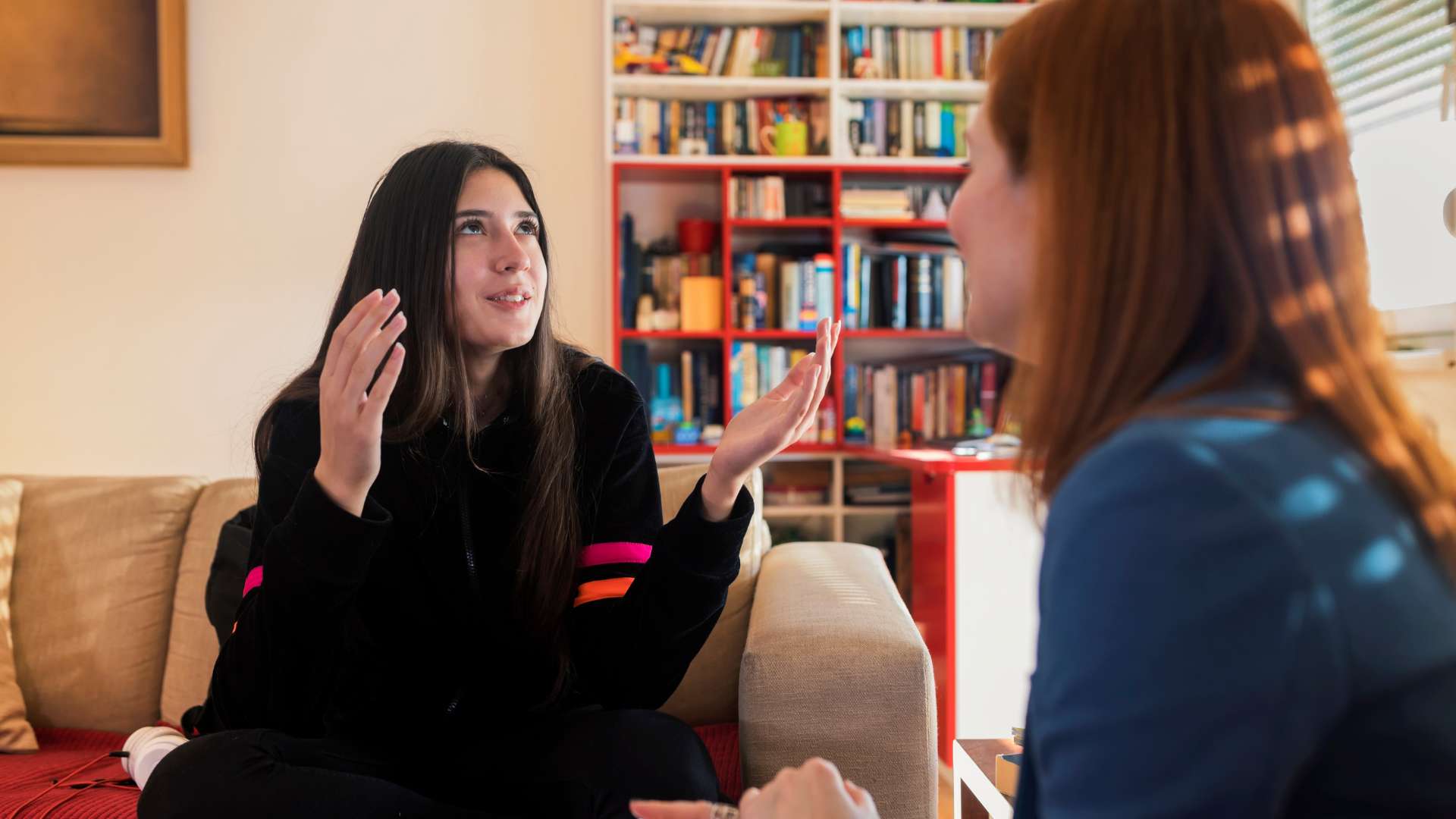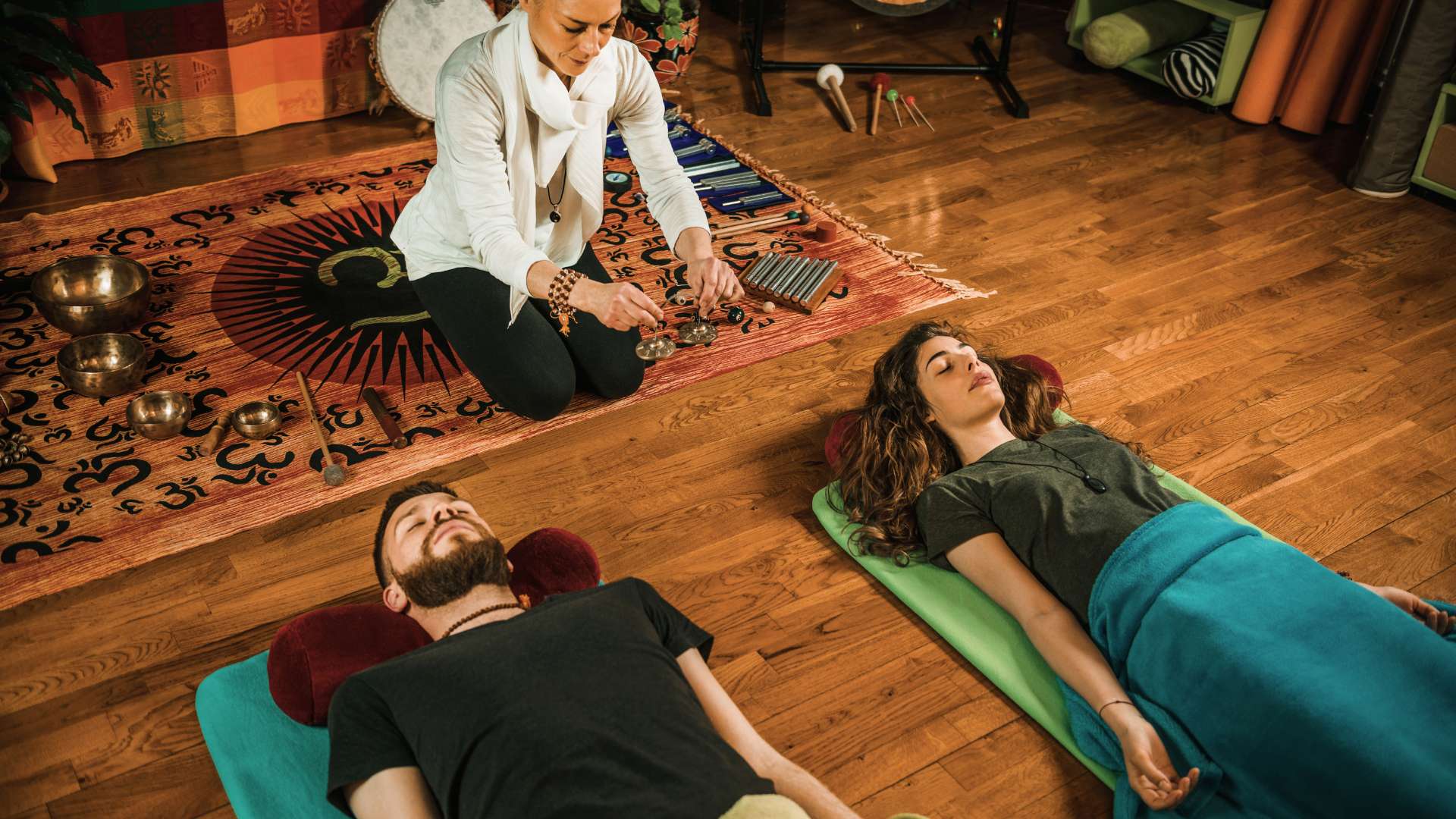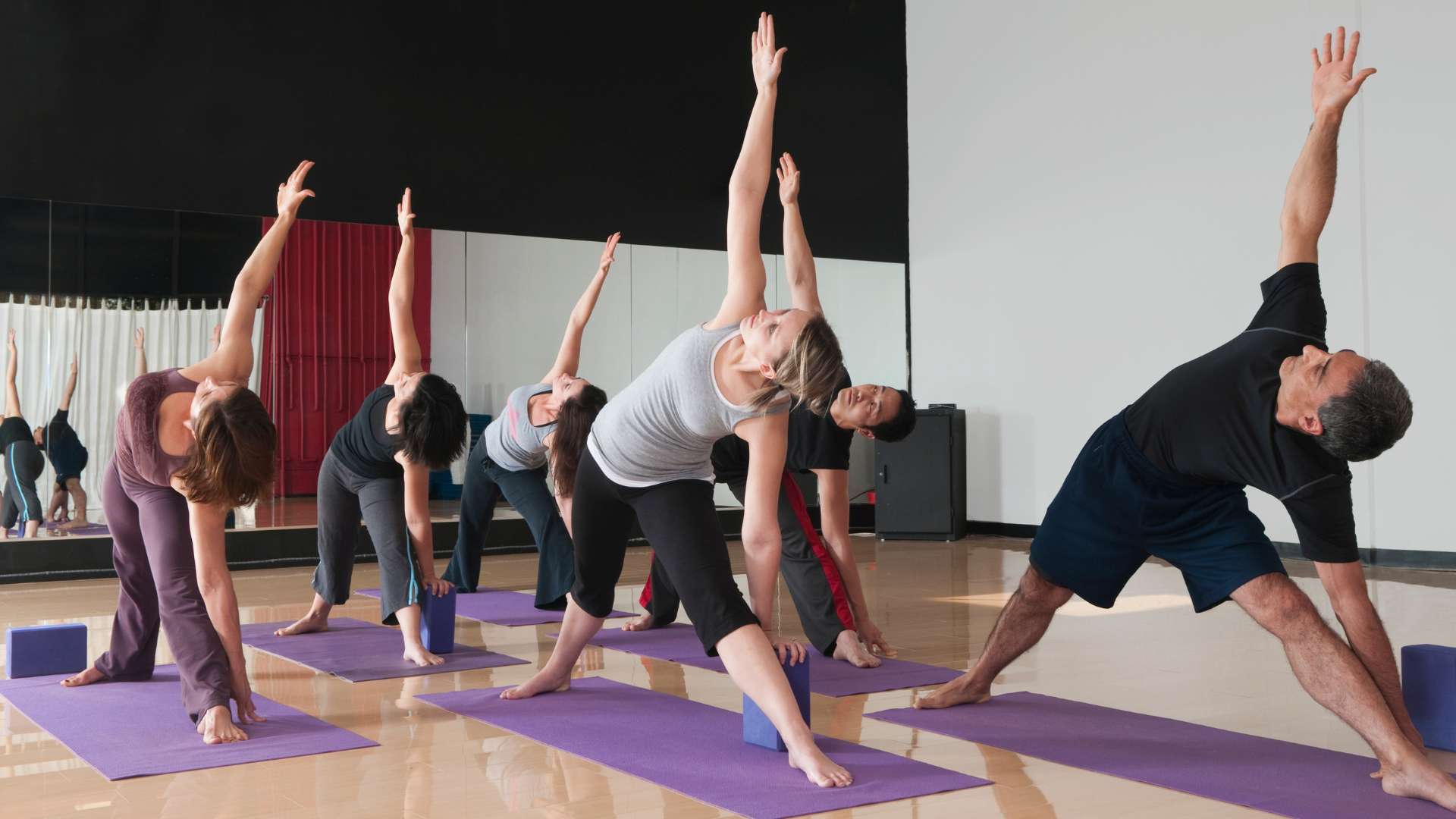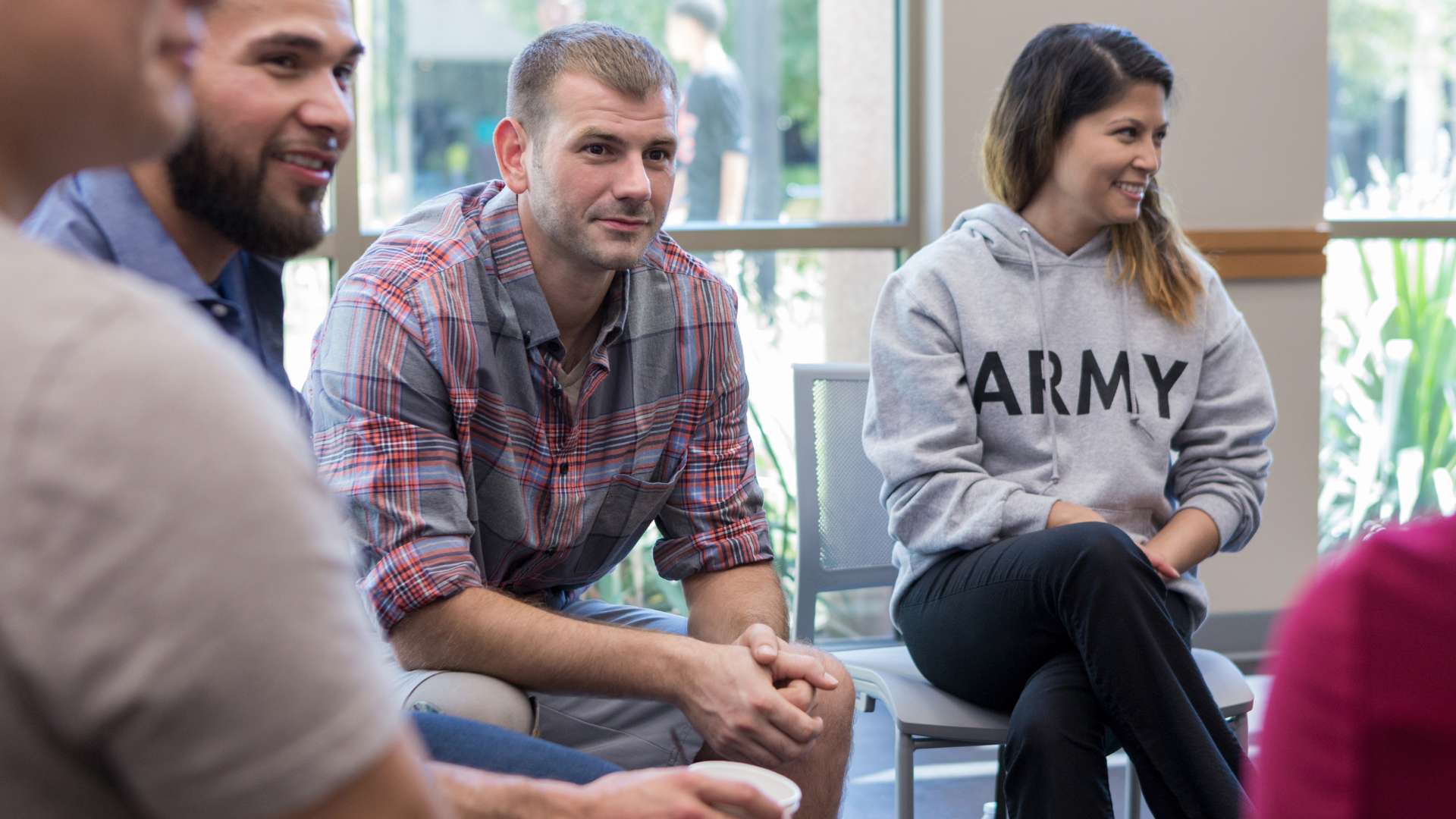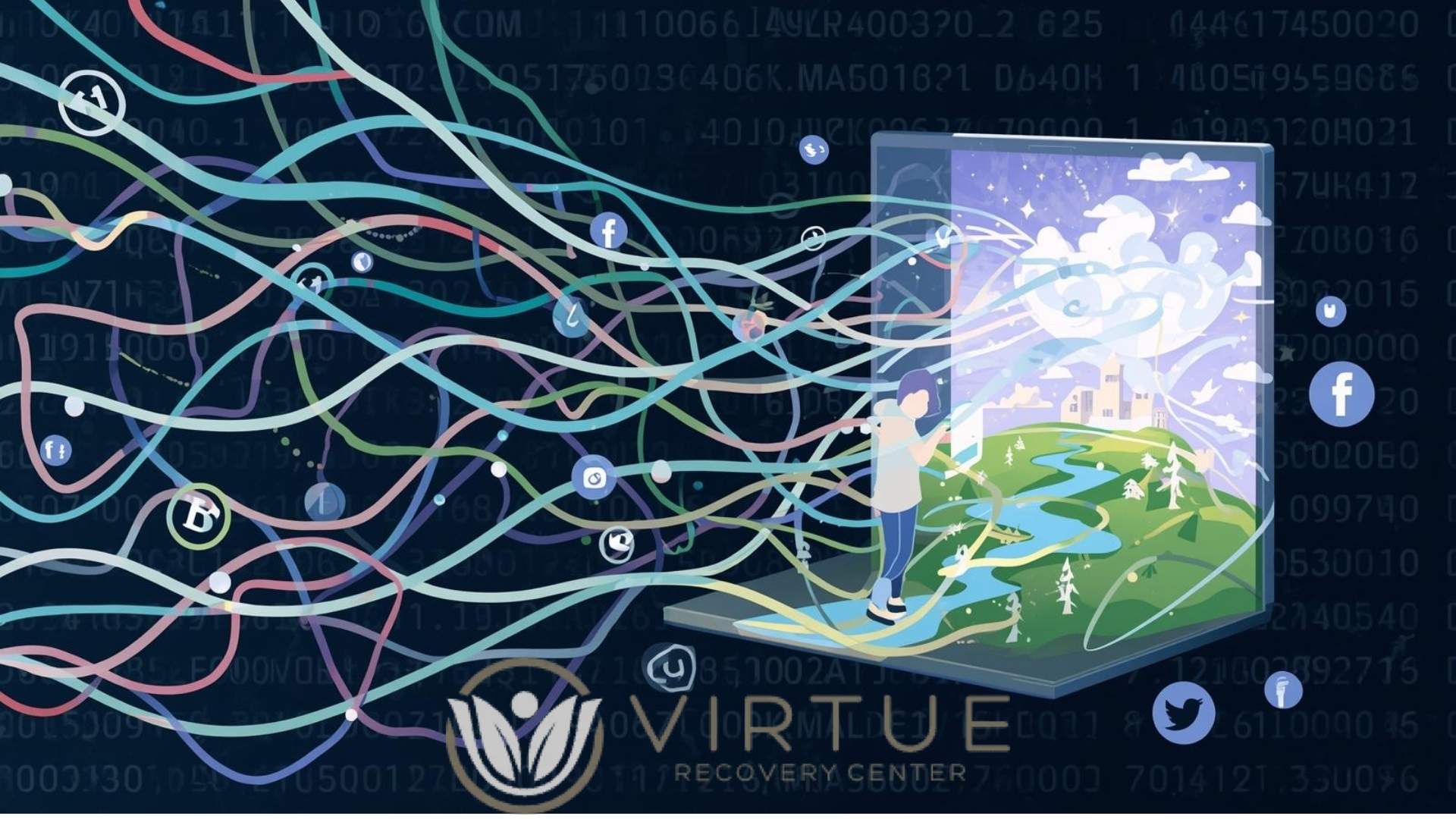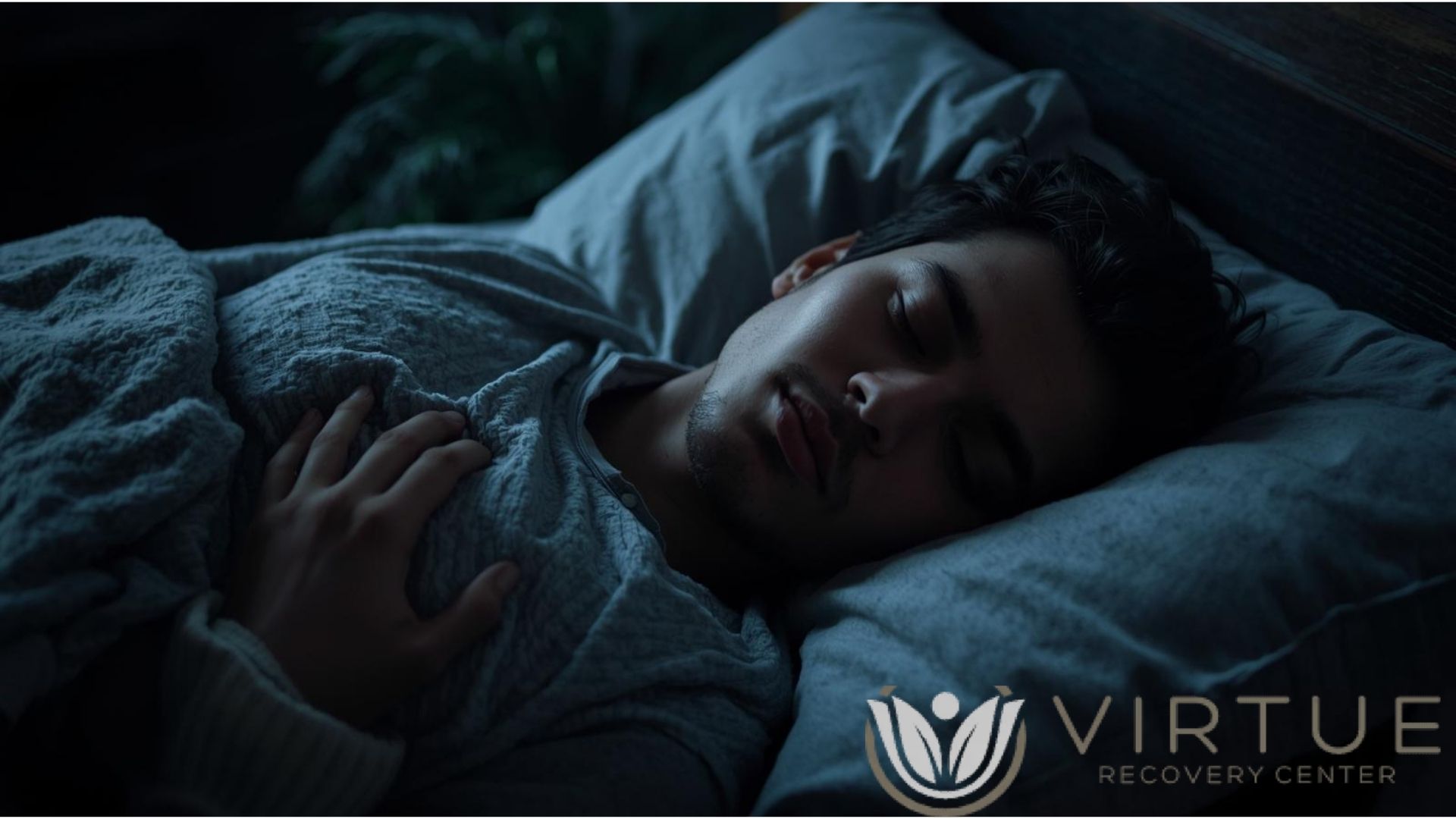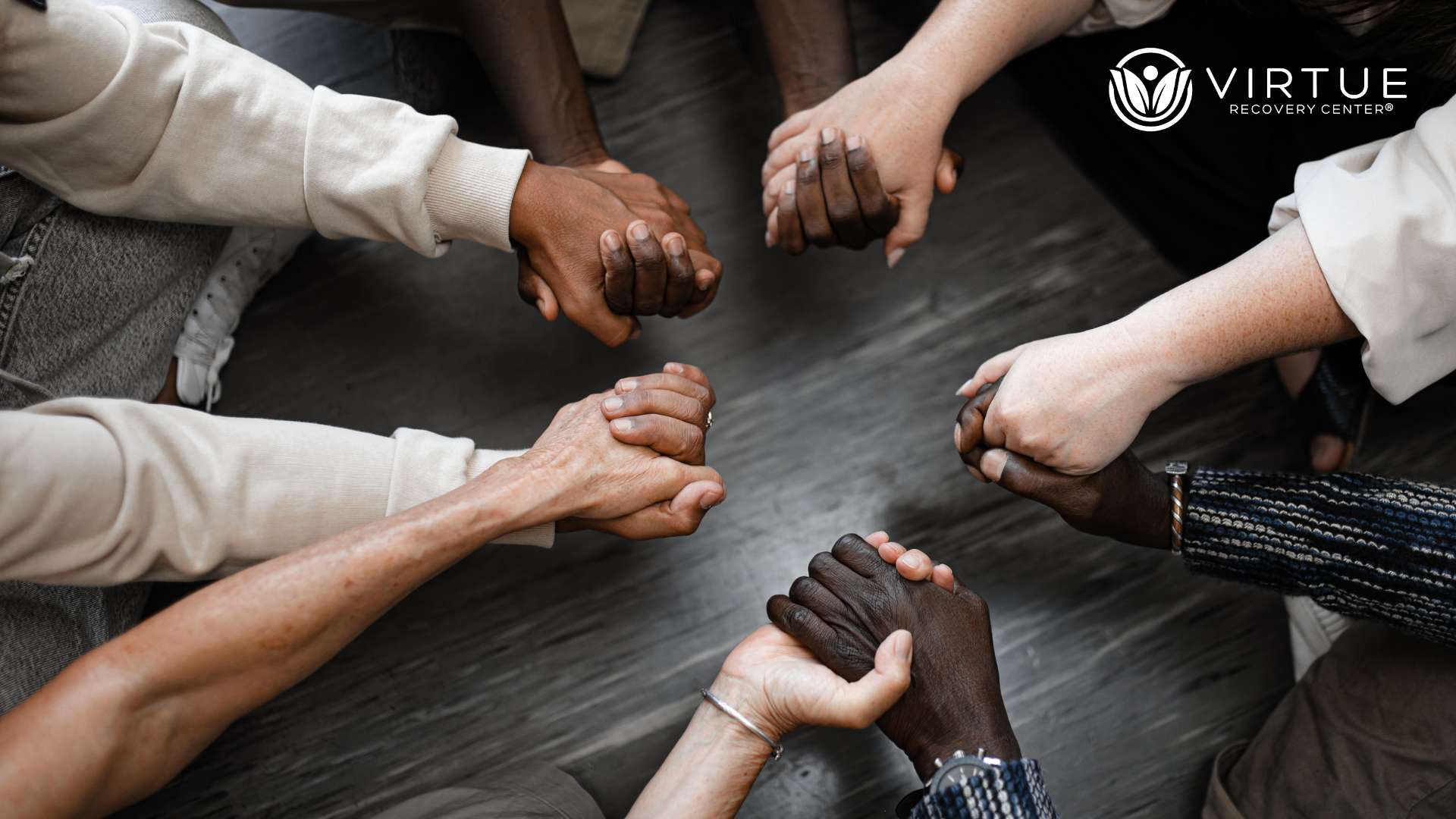PTSD Treatment Program at Virtue Recovery Las Vegas
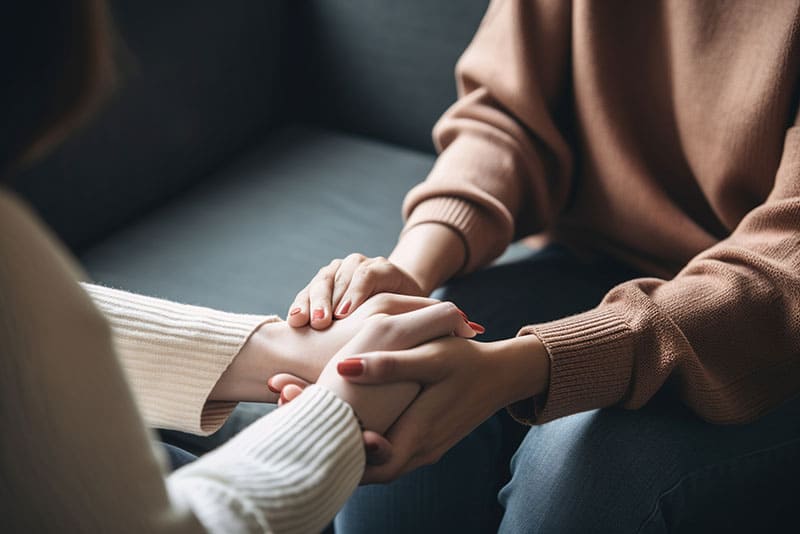 Traumatic experiences can be devastating, and the effects can last for years. Post-traumatic stress disorder (PTSD) is a mental health condition that often occurs after exposure to a traumatic event. Characterized by intrusive thoughts, flashbacks, and nightmares, it can make it difficult to live a healthy life. While PTSD is not always caused by trauma related to substance use or addiction, substance use can worsen the symptoms of PTSD and vice versa. A PTSD treatment program that addresses both the mental health and addiction aspects of this condition can help you find healing.
Traumatic experiences can be devastating, and the effects can last for years. Post-traumatic stress disorder (PTSD) is a mental health condition that often occurs after exposure to a traumatic event. Characterized by intrusive thoughts, flashbacks, and nightmares, it can make it difficult to live a healthy life. While PTSD is not always caused by trauma related to substance use or addiction, substance use can worsen the symptoms of PTSD and vice versa. A PTSD treatment program that addresses both the mental health and addiction aspects of this condition can help you find healing.
At Virtue Recovery Las Vegas, we understand the complex relationship between PTSD and addiction. Our specialized PTSD treatment program looks at each individual’s unique needs to craft an effective plan of care that includes evidence-based therapies. Our holistic approach to PTSD treatment services can help you build healthy coping skills and manage the symptoms of both PTSD and substance use disorder.
Call 866.520.2861 today to get started on your treatment plan. Our substance abuse treatment program services in Las Vegas can help you begin your journey toward healing and recovery.
An Overview of PTSD
PTSD is a mental health condition that can develop as a result of a traumatic event. Traumatic events can include physical or sexual assault, war and combat-related experiences, natural disasters, medical procedures, and even witnessing a traumatic event. PTSD is a way that the brain and body cope with intense stress. When faced with a traumatic event, people may experience intrusive thoughts and flashbacks that make it difficult to live their lives. Symptoms of PTSD can include:
- Flashbacks
- Disrupted sleep patterns
- Avoidance of certain activities, places, or people associated with the trauma
- Difficulty concentrating and focusing
- Intense feelings of guilt, fear, or anxiety
- Irritability or outbursts of anger
Left untreated, PTSD can have a significant impact on your quality of life. It can be intertwined with addiction in complicated ways, making it even more important to get help from an experienced mental health care provider.
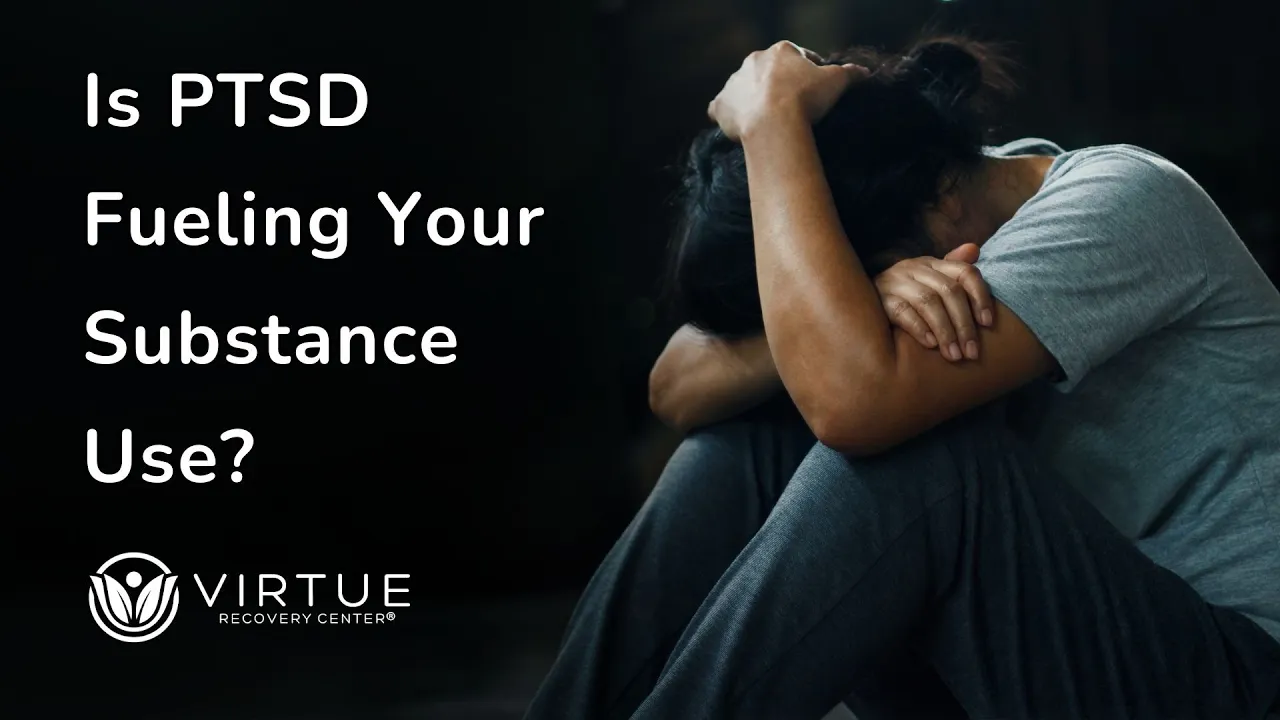
How Our PTSD Treatment Program Can Help
We create PTSD treatment plans that are tailored to the individual needs of our clients. Both individual and group therapy sessions are typically part of our PTSD treatment program. Individual sessions offer an opportunity to work on personal issues in a one-on-one setting with a therapist. Group sessions provide the support of a caring group of peers who understand the unique challenges of PTSD.
Family therapy can also be a critical part of the PTSD treatment process. We understand that traumatic events can have lasting effects on loved ones, and we strive to create an environment of healing for everyone involved.
Our trauma-informed care is based on the understanding that PTSD is a normal reaction to an abnormal event. We use evidence-based therapies like cognitive-behavioral therapy (CBT) to help you develop healthy coping skills and manage the symptoms of PTSD.
While a PTSD treatment program can take time, it is possible to find healing. Our team is here to provide the support and guidance you need at each step of the recovery journey.
Step-by-Step Process for PTSD Treatment
Starting PTSD treatment can feel scary, but we’re here to make it easier. At Virtue Recovery Las Vegas, we have a clear, supportive process:
Step 1: Initial Call – Call our team. Share your story, and we’ll explain how we can help. We’ll also check your insurance benefits.
Step 2: Assessment – After admission, our experts assess your symptoms and goals. This ensures your treatment is personalized.
Step 3: Therapy Begins – You’ll start individual, group, and family therapies. We use proven methods to treat PTSD and any related addiction issues.
Step 4: Outpatient Care – After completing inpatient treatment, many clients continue healing through outpatient programs. This helps you apply what you’ve learned in real-life settings while still receiving professional support.
Step 5: Transition Planning – As you move toward long-term recovery, we’ll help you build a plan that includes support groups, mental health care, and relapse prevention tools.
Recovery doesn’t happen overnight, but with a step-by-step plan, it feels achievable. You’ll never walk this path alone.
Holistic PTSD Treatment
Healing from PTSD requires more than just addressing the mind. It involves caring for the whole person—mind, body, and spirit. At Virtue Recovery Las Vegas, our holistic PTSD treatment approach does just that, helping you find balance and peace.
Holistic treatments combine evidence-based therapy with practices that nurture overall well-being. For instance, mindfulness techniques like meditation and yoga help calm the nervous system, reduce stress, and improve emotional regulation. These practices teach you how to stay grounded in the present, even when faced with triggers.
We also focus on physical health. Proper nutrition and regular exercise are crucial in rebuilding strength and energy. Eating well and moving your body can lift your mood, boost your confidence, and support your recovery journey.
Creative therapies such as art and music are another essential part of our holistic approach. Expressing emotions through painting, drawing, or songwriting can unlock healing in ways words often can’t. These activities provide a safe outlet for processing trauma and rediscovering joy.
After completing inpatient treatment, many clients continue their healing in outpatient care. Our outpatient programs continue the holistic focus—offering therapy, wellness support, and ongoing resources while you return to daily life. This transition helps reinforce everything you’ve gained in treatment while giving you space to grow independently.
Holistic PTSD treatment doesn’t just stop at improving your symptoms. It helps you build lifelong skills to manage stress and create a more balanced life. At Virtue Recovery, we ensure your recovery journey is as enriching and supportive as possible. Healing is about more than just survival—it’s about thriving.
Trauma-Informed Treatment for PTSD and Addiction
Trauma can leave lasting scars, both visible and invisible. At Virtue Recovery Las Vegas, we understand the deep impact trauma can have on your life—and how it often plays a major role in addiction. That’s why we offer trauma-informed treatment across both inpatient and outpatient care, ensuring you receive the right support no matter where you are in your recovery journey.
Trauma-informed care starts with creating a safe, respectful environment where healing can begin. Our team is specially trained to recognize the effects of trauma and to avoid practices that could retraumatize you. We don’t just treat surface-level symptoms. We look beneath them to help you uncover and heal the root causes of pain.
Our approach includes proven therapies such as Cognitive-Behavioral Therapy (CBT) and Eye Movement Desensitization and Reprocessing (EMDR). These treatments are designed to help you process difficult memories in a way that feels manageable and empowering. Over time, they reduce the emotional weight of trauma and help you regain a sense of stability and control.
Alongside therapy, we offer holistic support like mindfulness, yoga, and creative therapies such as art and music. These healing tools help calm your nervous system, build emotional resilience, and give you healthy ways to manage stress.
Whether you’re in our inpatient program or continuing care through outpatient services, trauma-informed treatment is at the heart of everything we do. At Virtue Recovery, you’ll be met with empathy, understanding, and a care team that sees your strength—even when you don’t feel it yet. Healing is possible, and we’re here to walk that path with you.
The Virtue Recovery Difference
At Virtue Recovery Las Vegas, healing is about more than just treatment—it’s about how we care for every person who walks through our doors, whether you’re here for inpatient care or continuing your journey through outpatient treatment.
We don’t believe in one-size-fits-all solutions. Your story is your own, and so is your recovery path. That’s why we take the time to truly listen. Every treatment plan is carefully personalized, ensuring the therapies, pace, and support you receive are right for you—whether you’re just beginning in residential care or stepping down to outpatient support.
What also sets us apart is our holistic approach. We treat the whole person—mind, body, and spirit. This means combining evidence-based therapies with wellness activities like yoga, mindfulness, art, and nutrition. Each element works together to help you heal not only from addiction or trauma but from the stress and pain that often come with them.
And just as important, we are a trauma-informed center. We understand the close connection between PTSD and addiction. That’s why we provide a safe, supportive environment where you’ll never feel judged or misunderstood. Every part of our program is built with compassion and sensitivity at its core.
At Virtue Recovery Las Vegas, recovery is about more than just getting better—it’s about rebuilding a life you love. And we’ll be with you every step of the way.
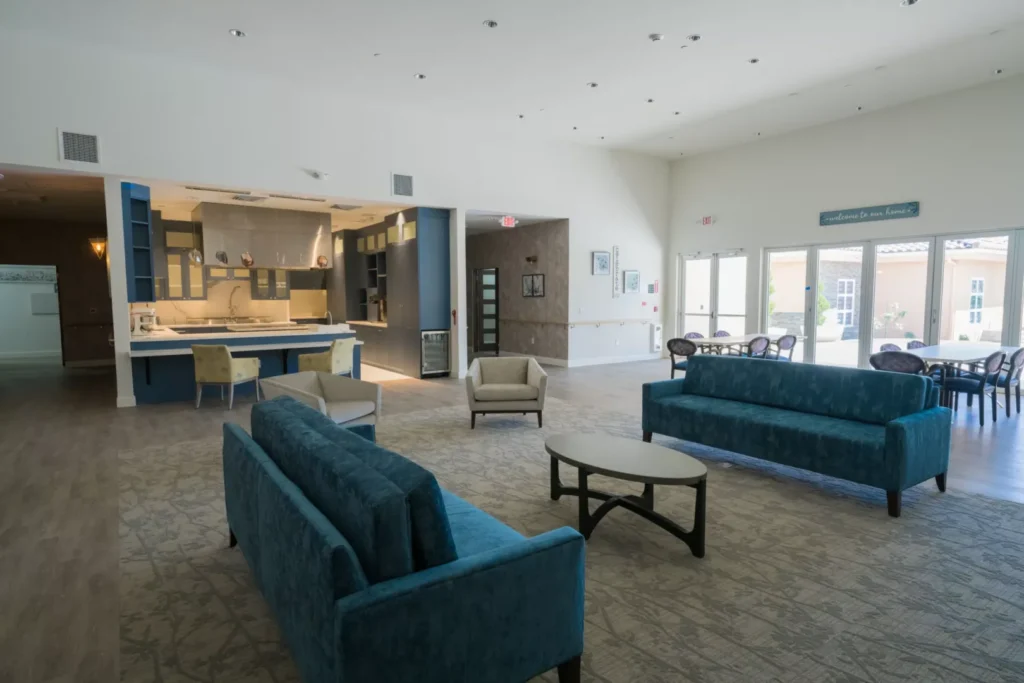
Private Suites Facility
Corbett Facility
Luxurious, private rooms for a serene, personalized recovery experience with utmost privacy.
🏢 Address: 9230 Corbett St, Las Vegas, NV 89149
🕓 Hours: Open 24 hours
Luxury Amenities
Access to high-end amenities, ensuring a comfortable stay while focusing on your health and well-being.
Personalized Care
Benefit from customized treatment plans, with one-on-one therapy sessions tailored to your unique recovery needs.
Privacy and Comfort
Enjoy the solitude of a private room, providing a peaceful environment conducive to healing and reflection.
Take a Virtual Tour of our Luxury Inpatient Las Vegas (Corbett) Facility

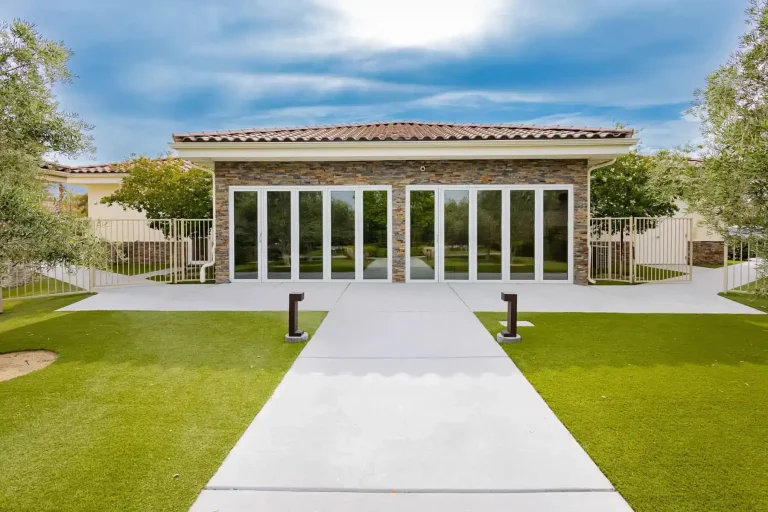





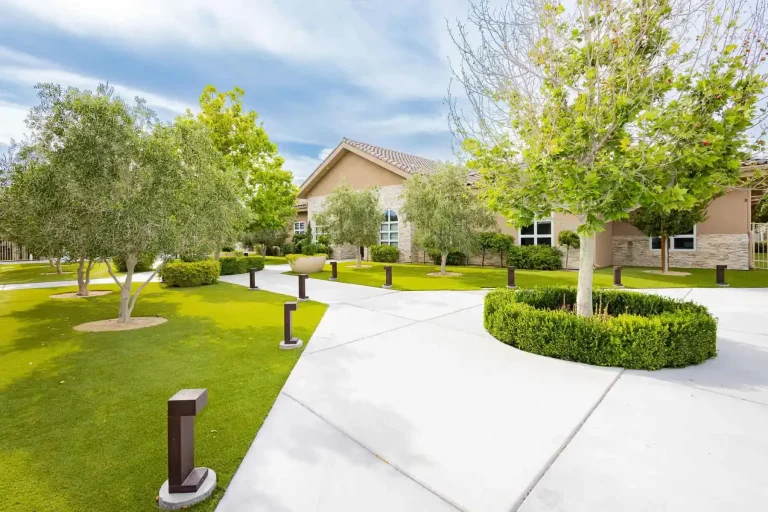
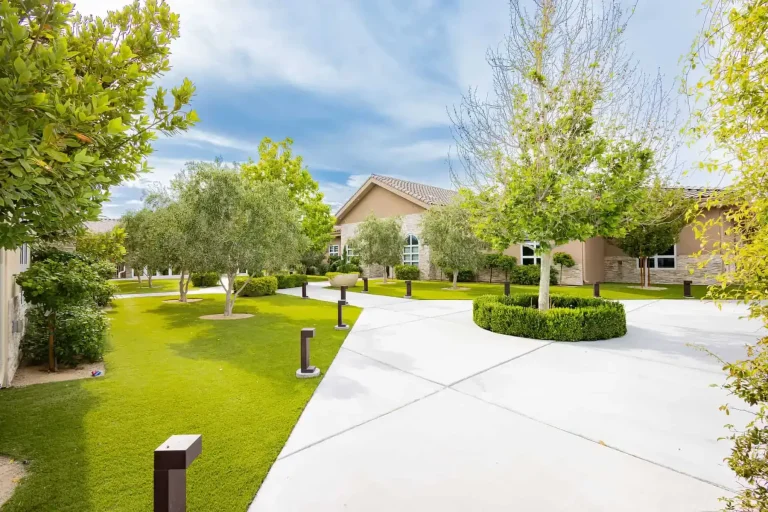


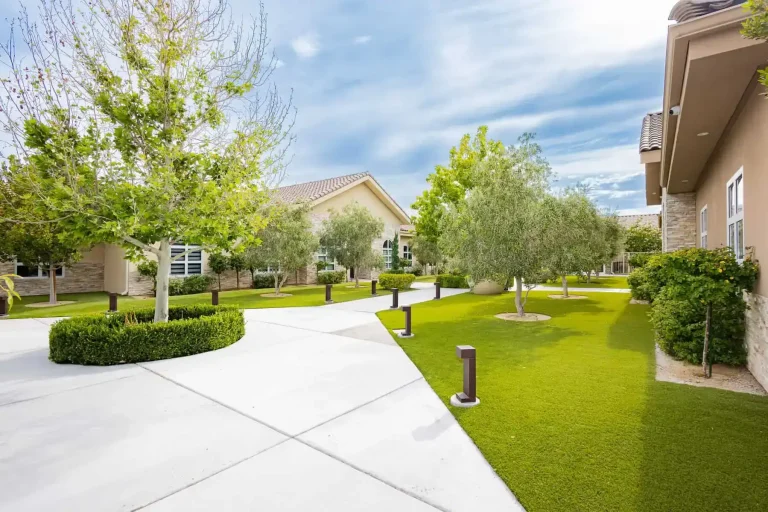
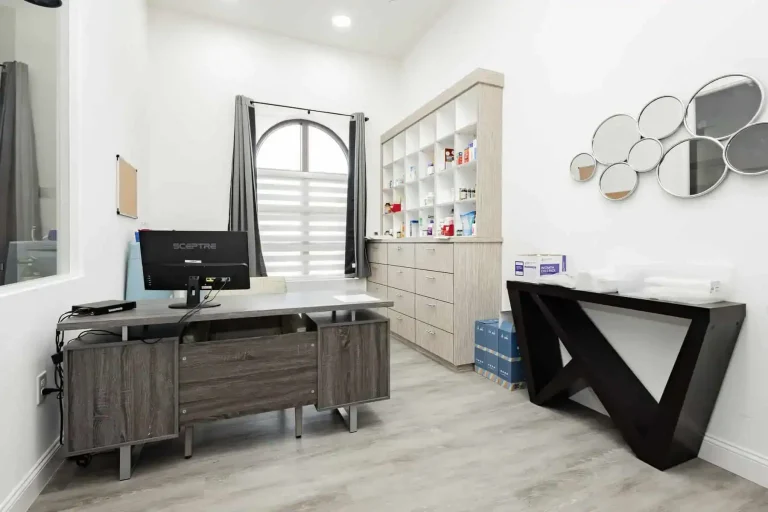
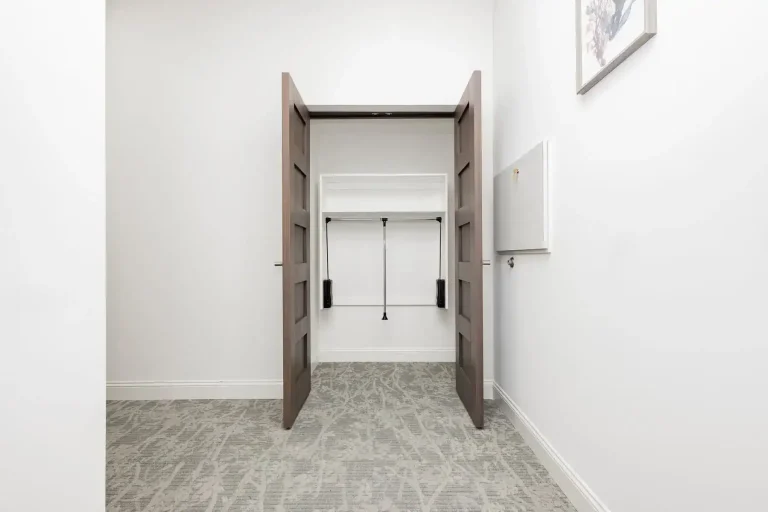
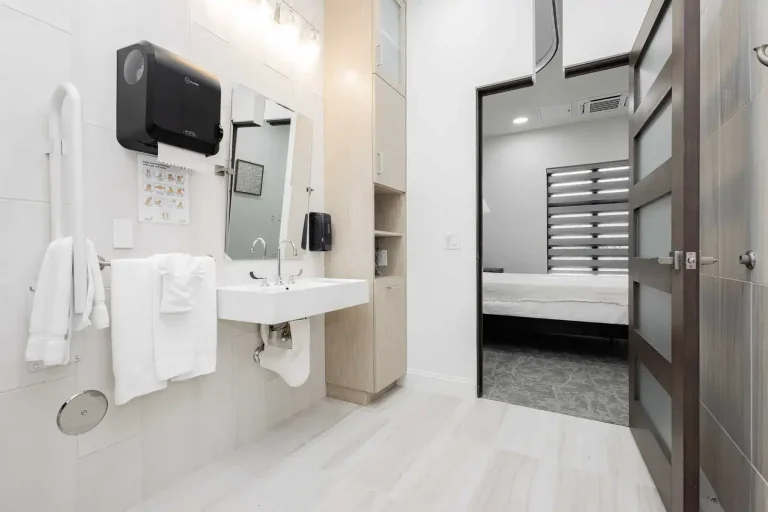
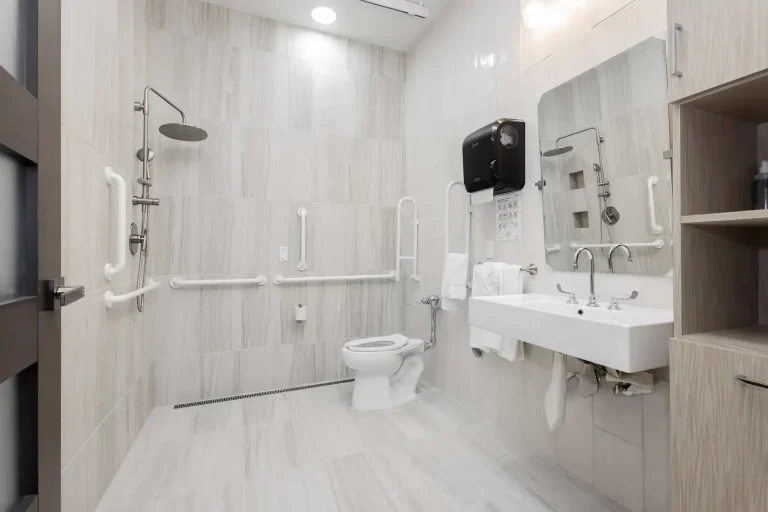


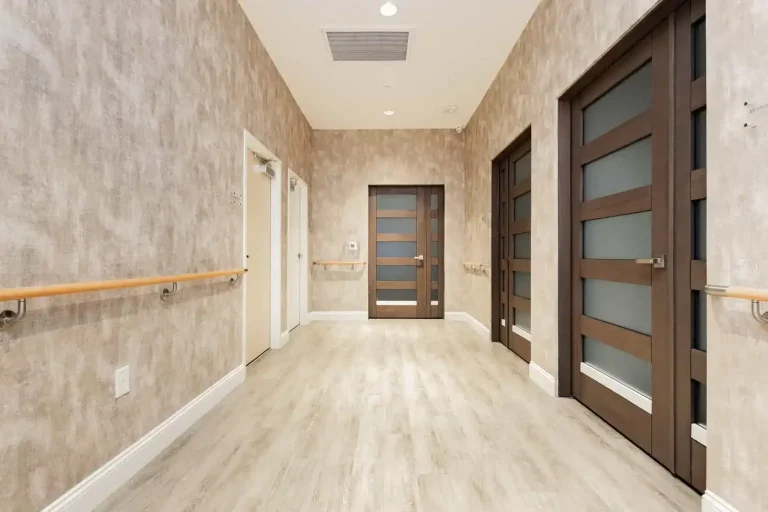
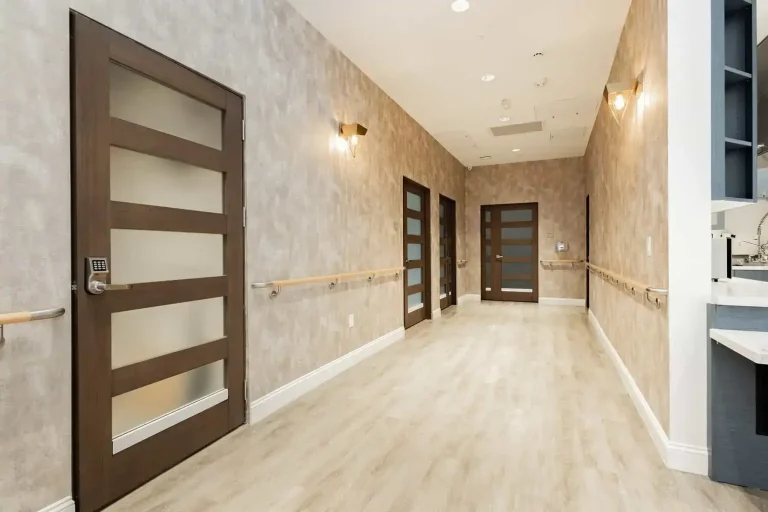





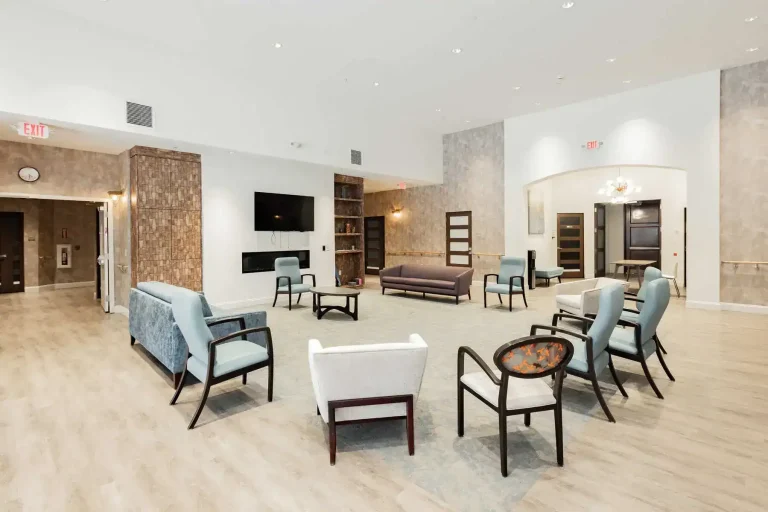
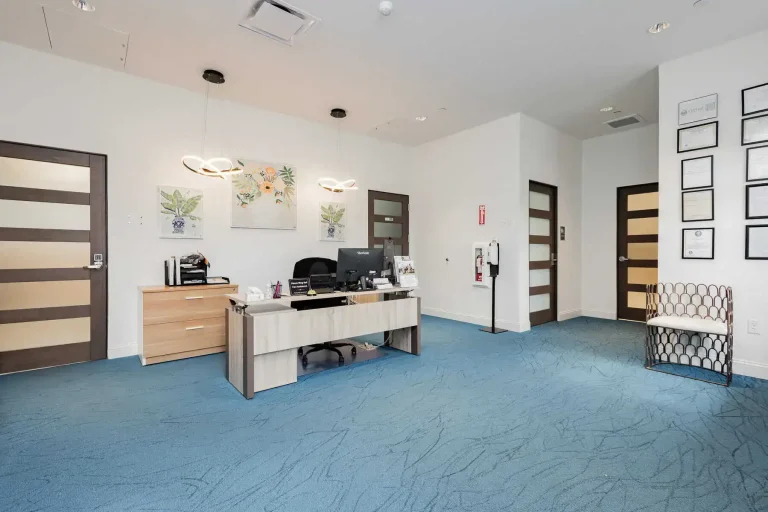
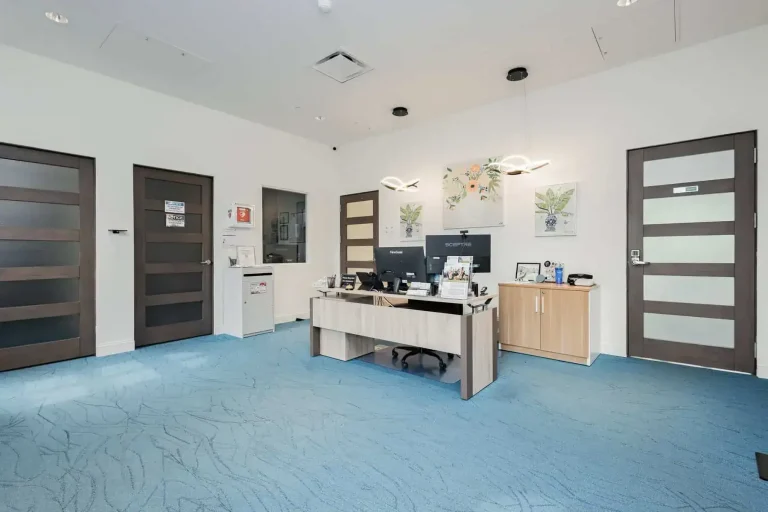


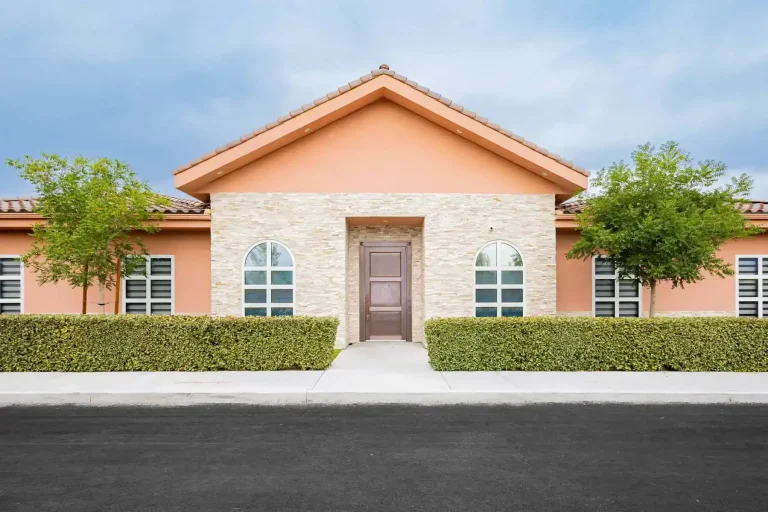
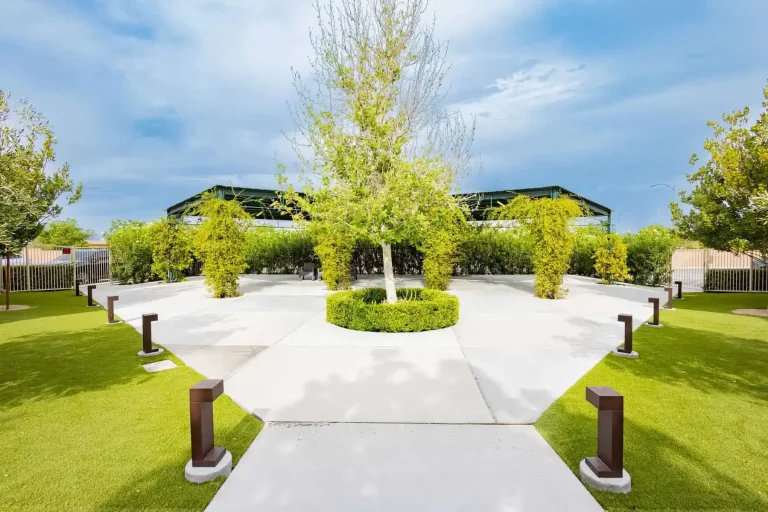

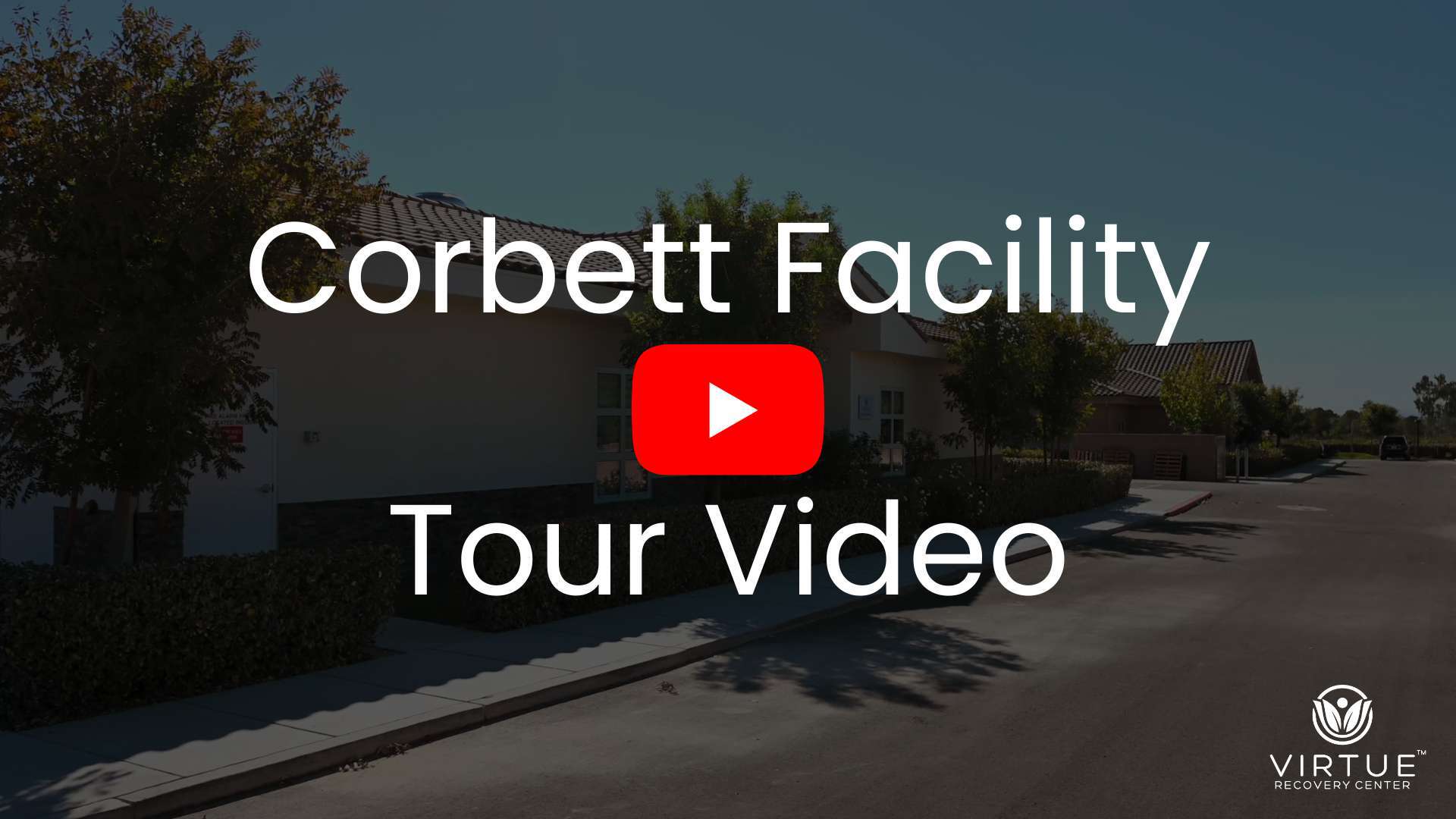
Take a virtual stroll through the serene and inviting Corbett facility of Virtue Recovery Center. Discover the elegant common areas, state-of-the-art treatment rooms, and comfortable residential spaces designed with your healing in mind. Experience the tranquil outdoor areas and get a glimpse of the comprehensive wellness programs we offer, all from the comfort of your home. This virtual tour is your first step toward a journey of recovery in an environment dedicated to your comfort and well-being.
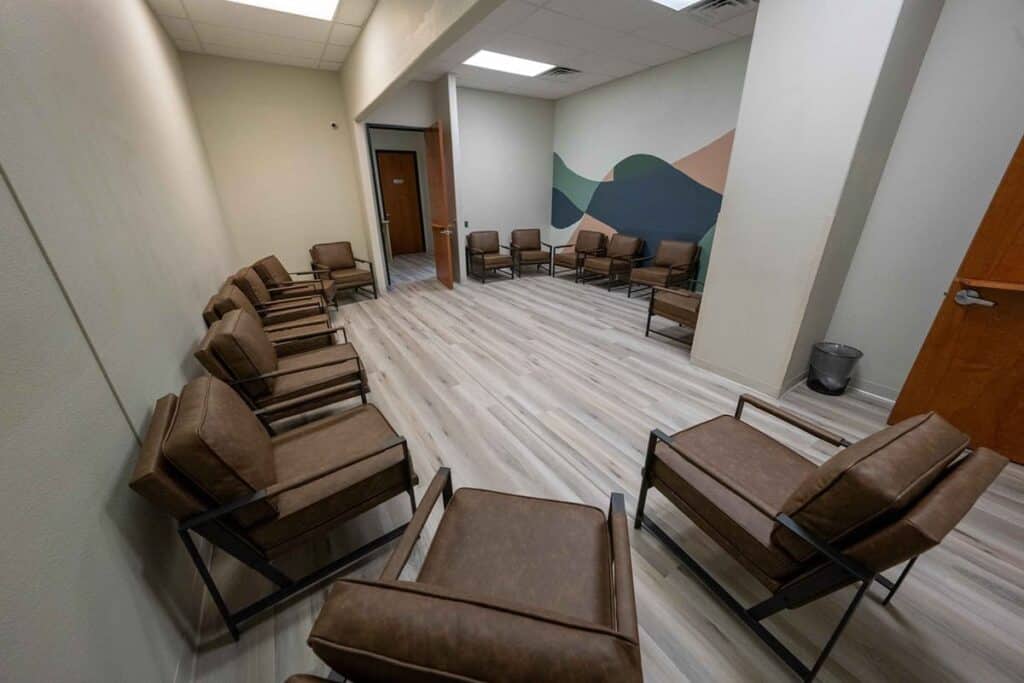
Outpatient Services Center
Montessouri Outpatient
Flexible outpatient care with daily life balance, offering structured therapy and support. Offering IOP, PHP, and aftercare with flexible hours from 8am to 8pm to suit your busy schedule.
🏢 Address: 2585 Montessouri St # 100, Las Vegas, NV 89117
🕓 Hours: Open 8am to 8pm
Flexibility
Tailor treatment to fit your schedule, allowing you to maintain work and family commitments while receiving care.
Community Connection
Stay connected to your support network at home, enhancing your recovery journey with familiar surroundings.
Continued Care
Ideal for transitioning from more intensive treatment, supporting long-term recovery with structured outpatient services.
Explore Our Outpatient Las Vegas (Montessouri) Facility
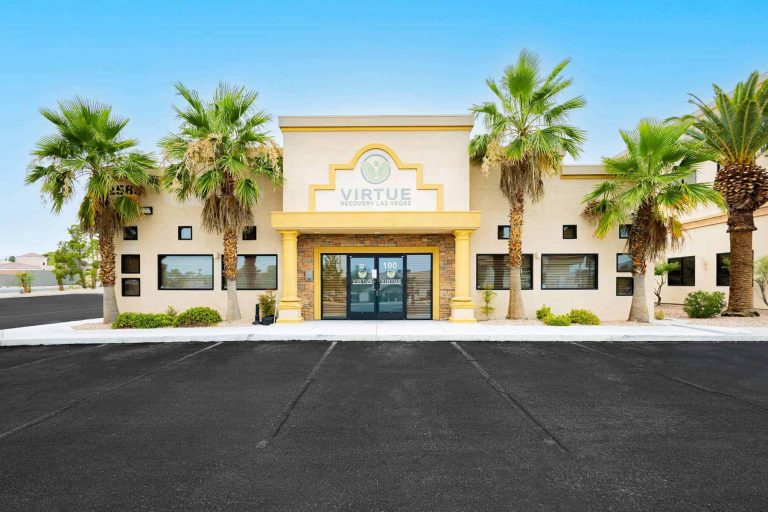
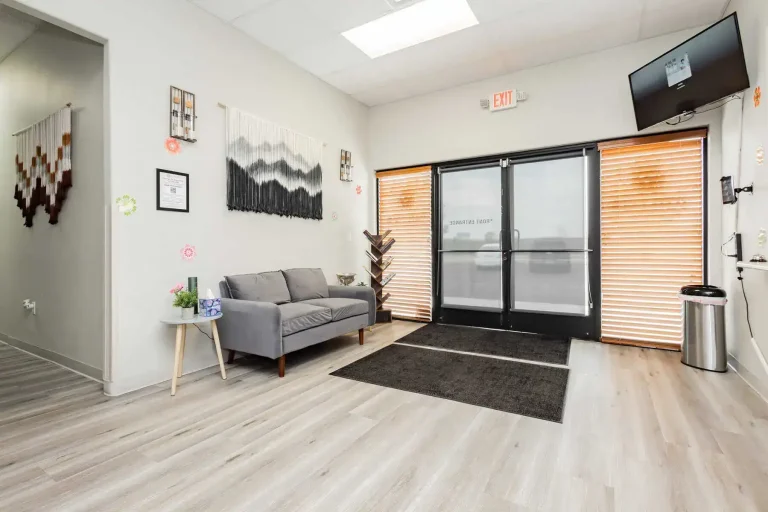
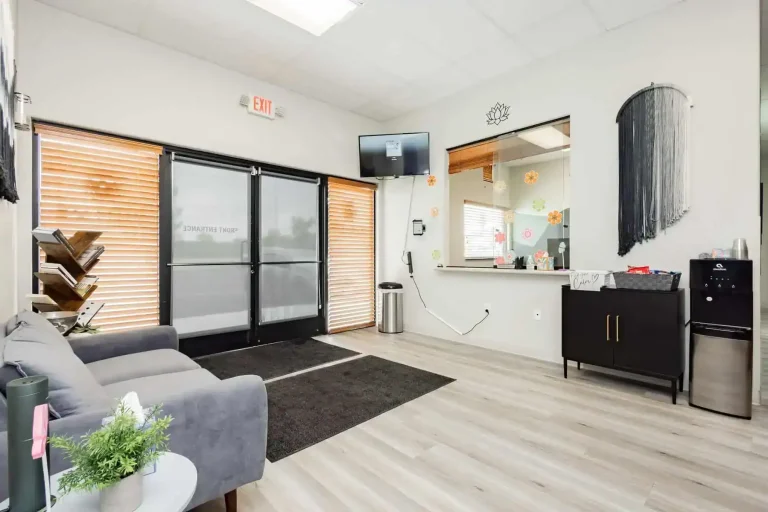
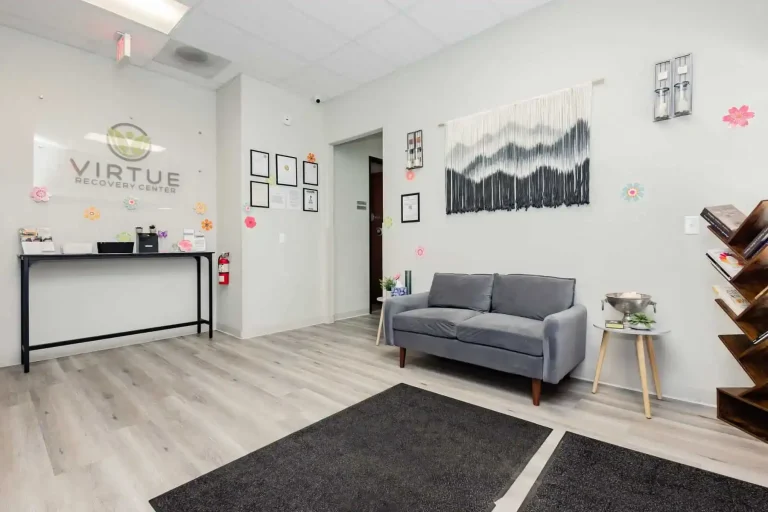
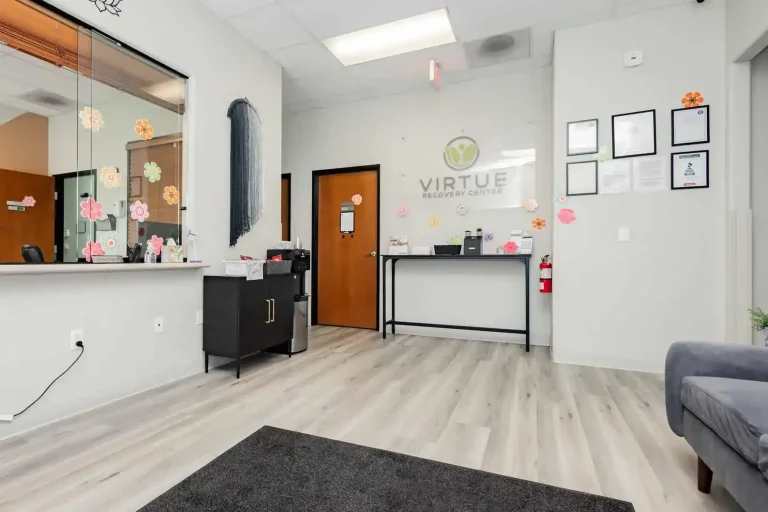

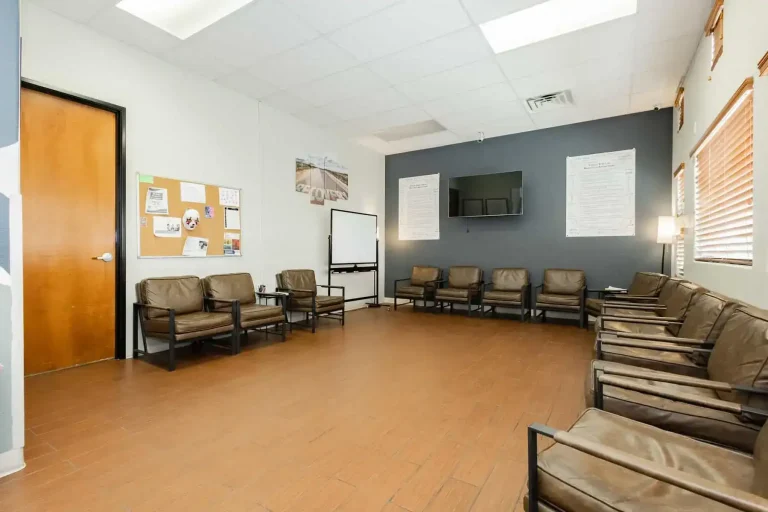
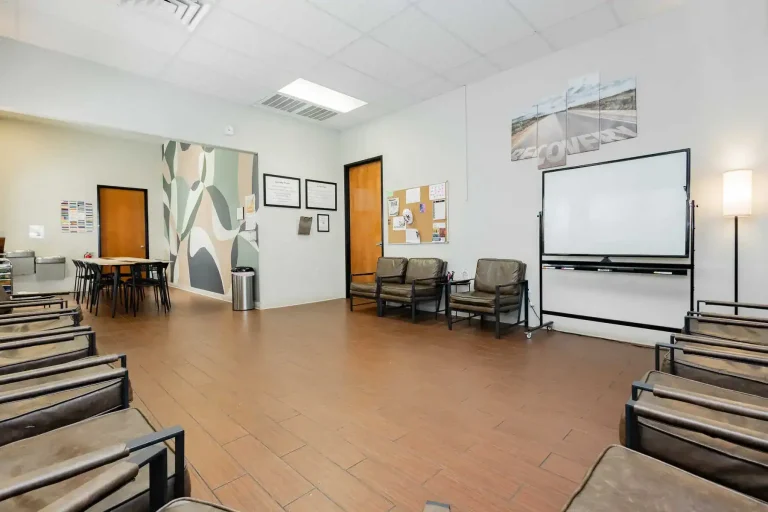
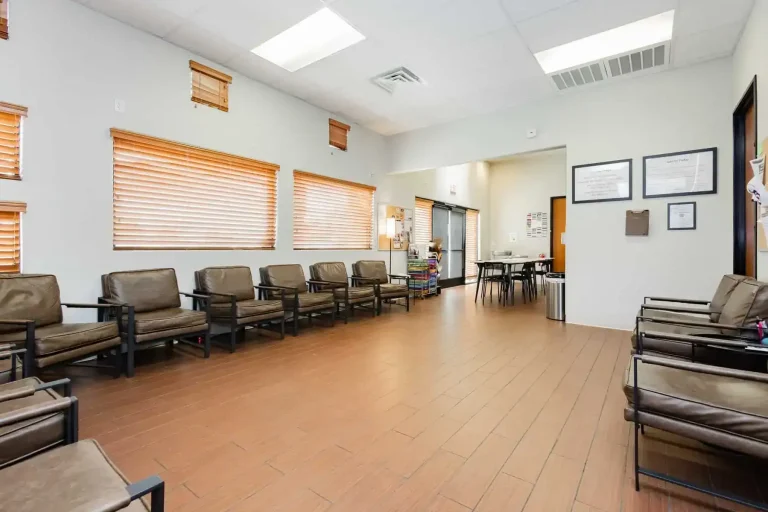
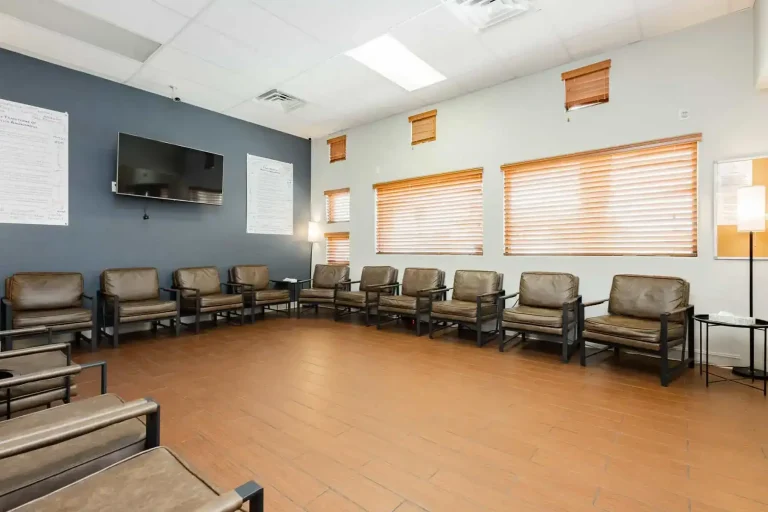
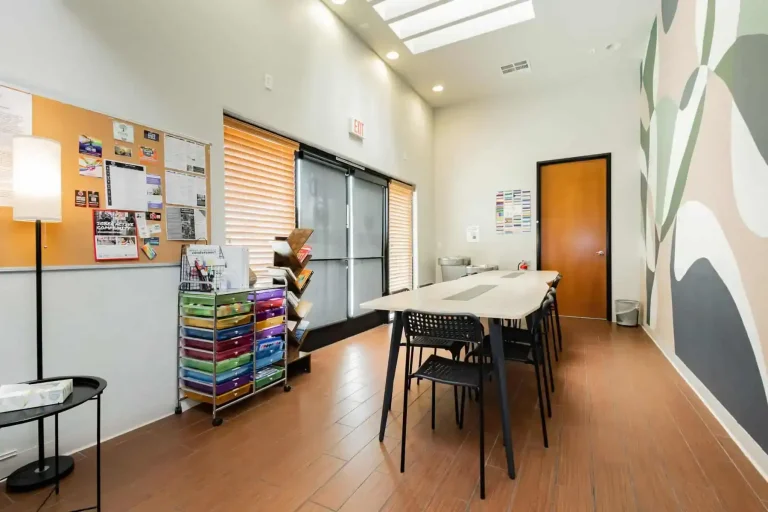
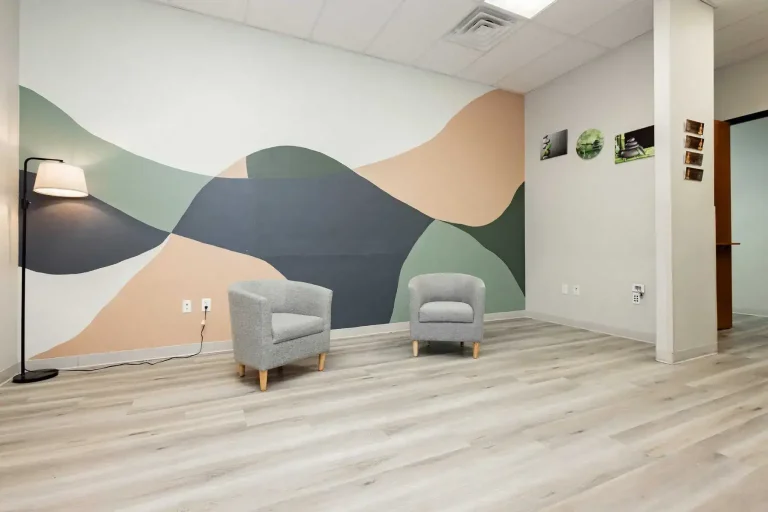
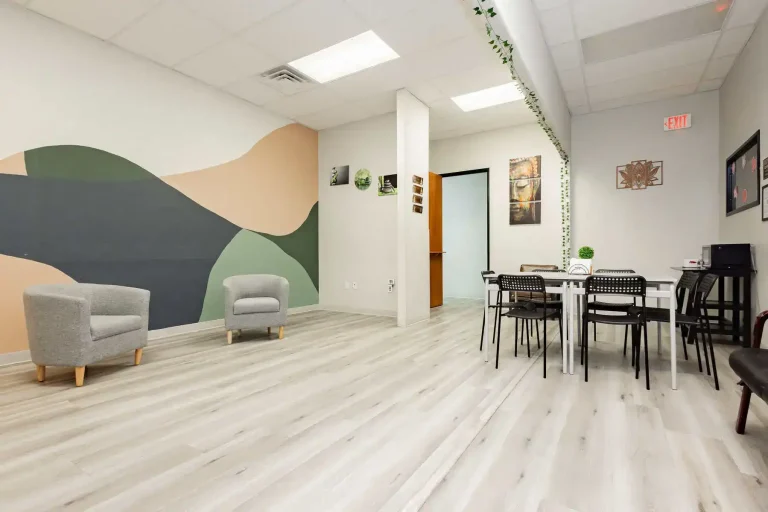
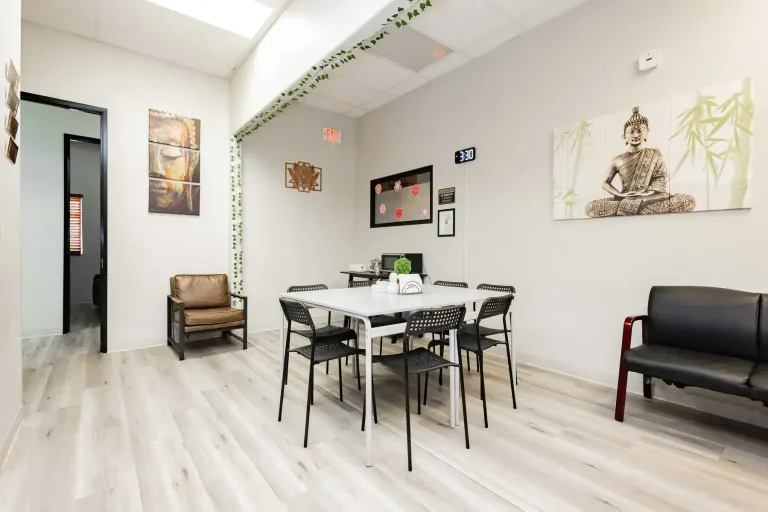
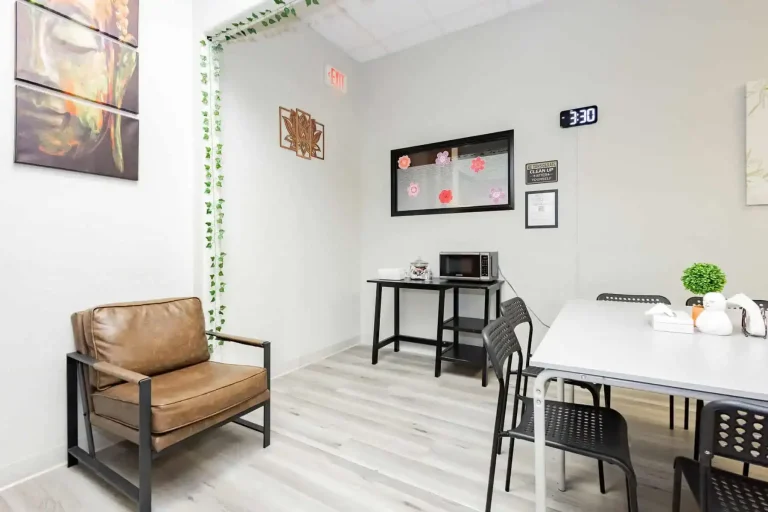
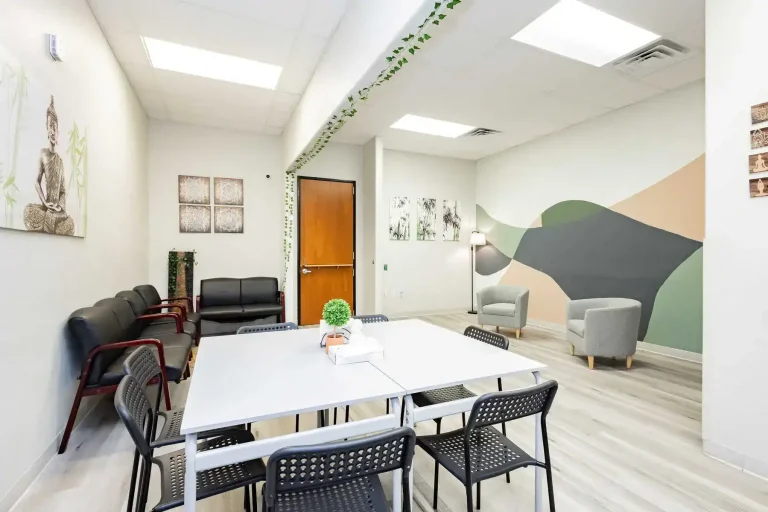
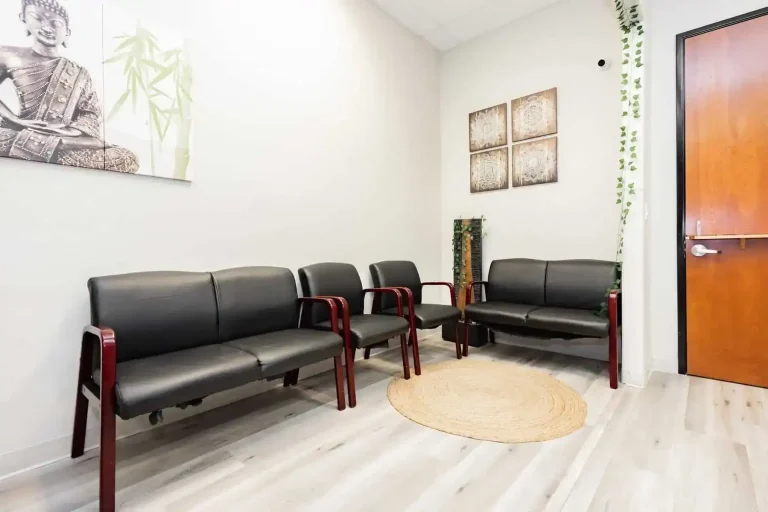
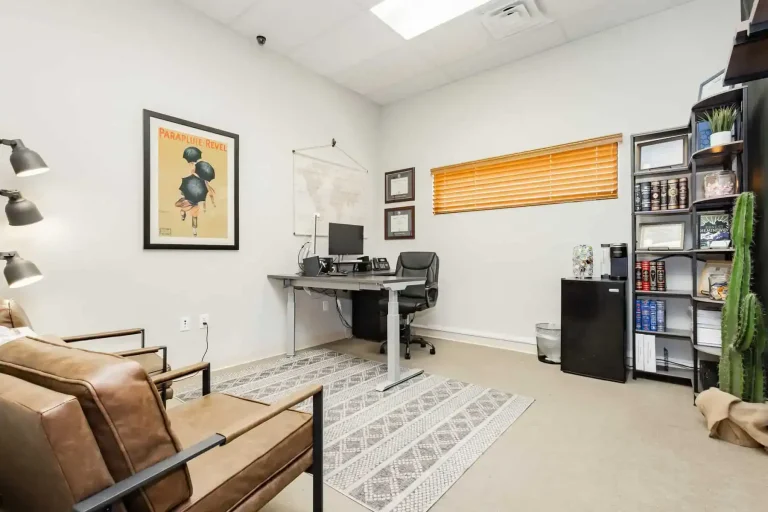
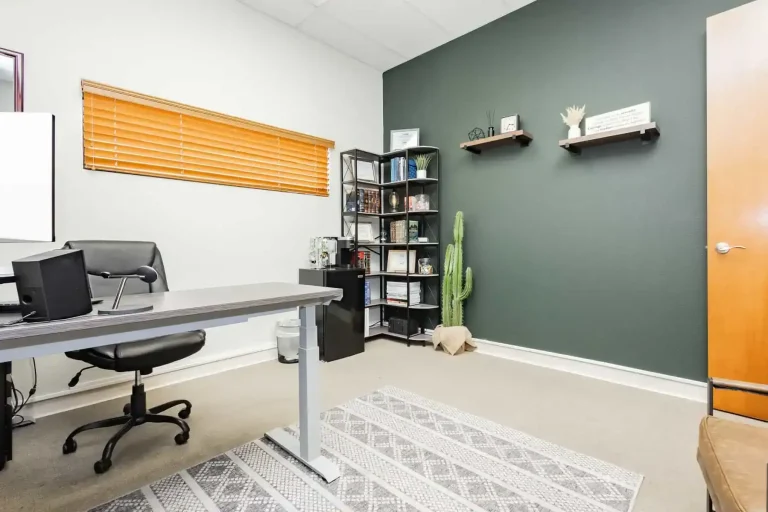
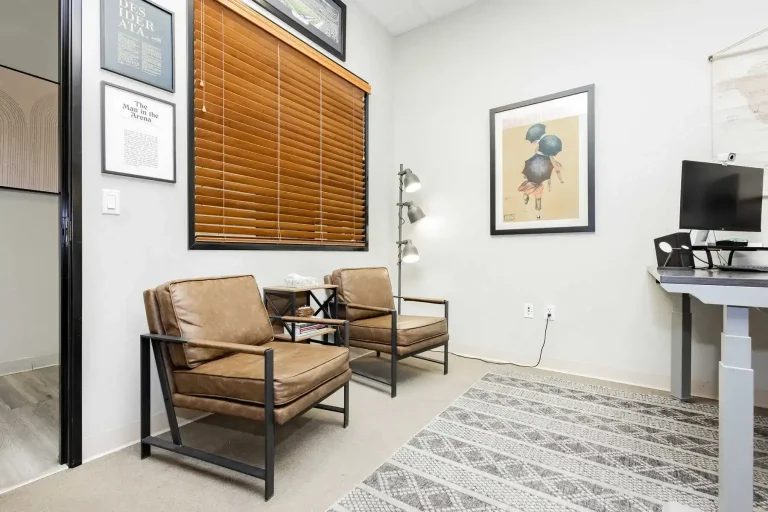
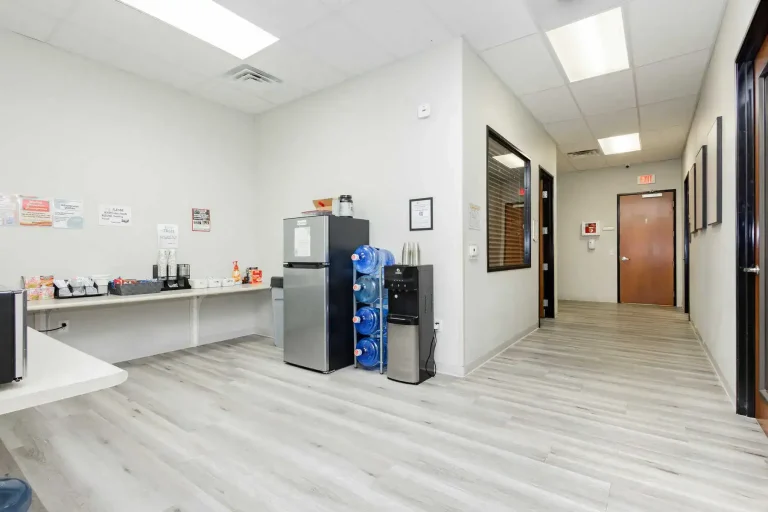
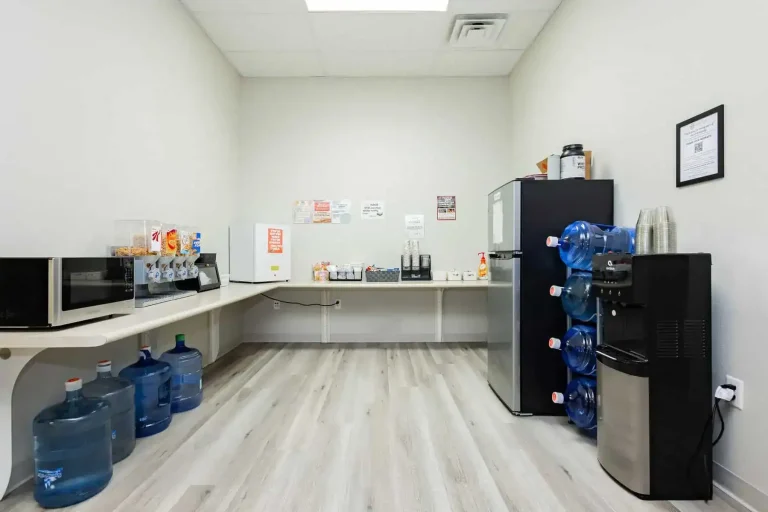
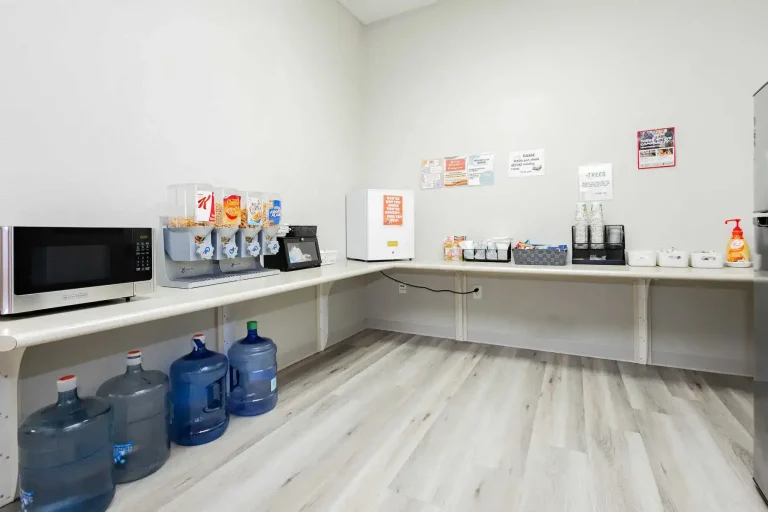
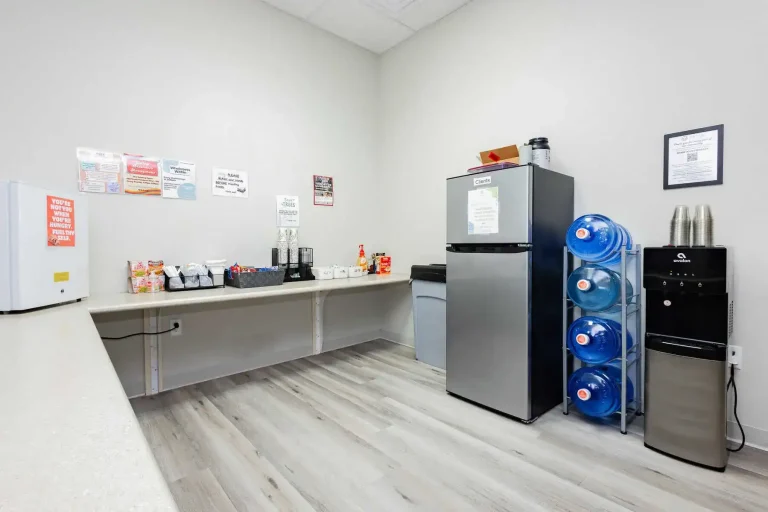
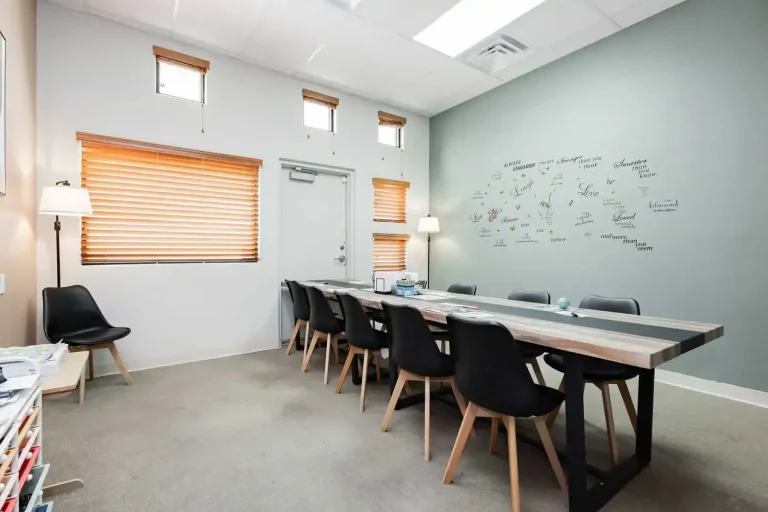
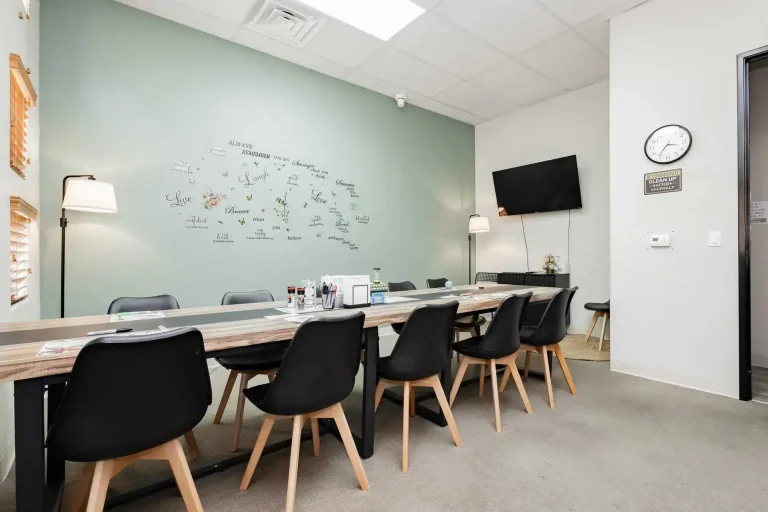
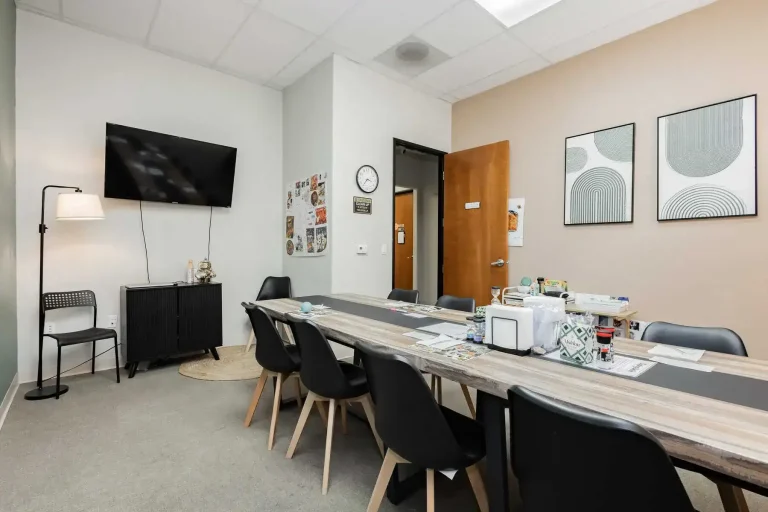
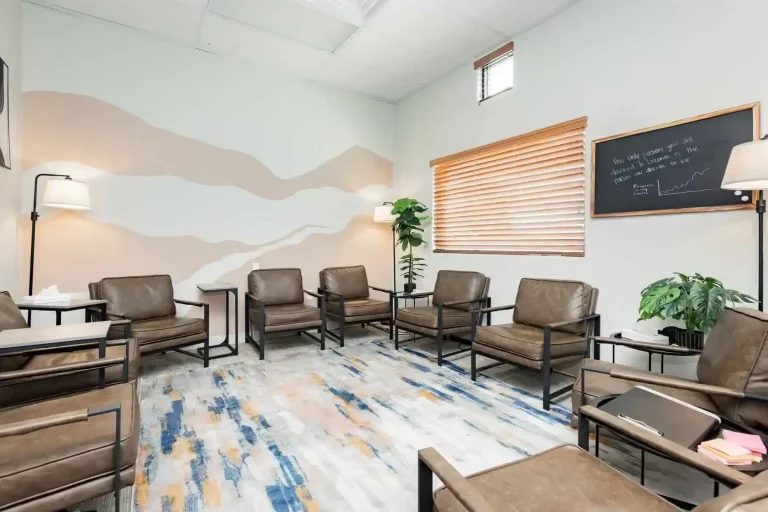
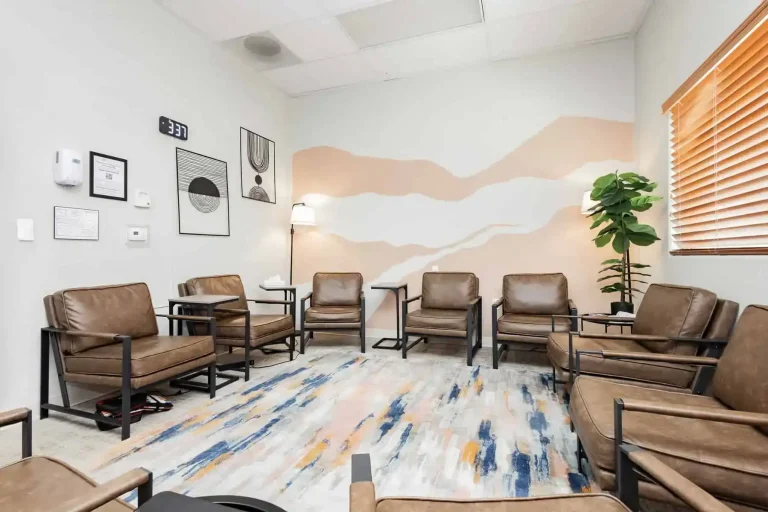
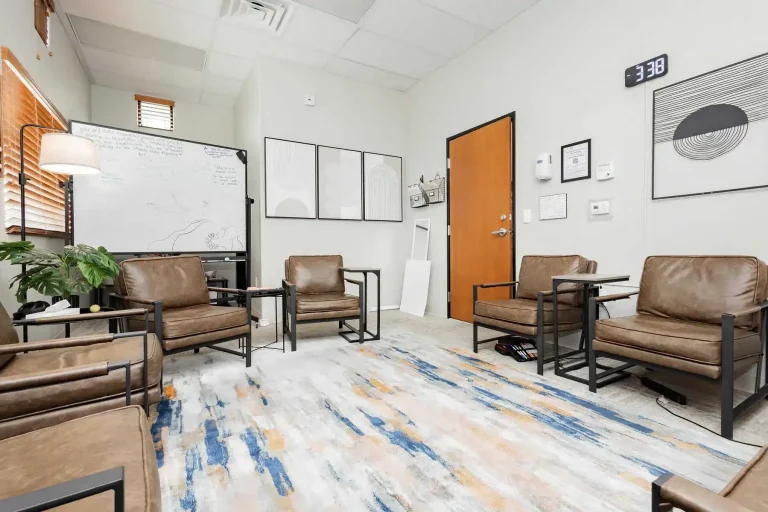
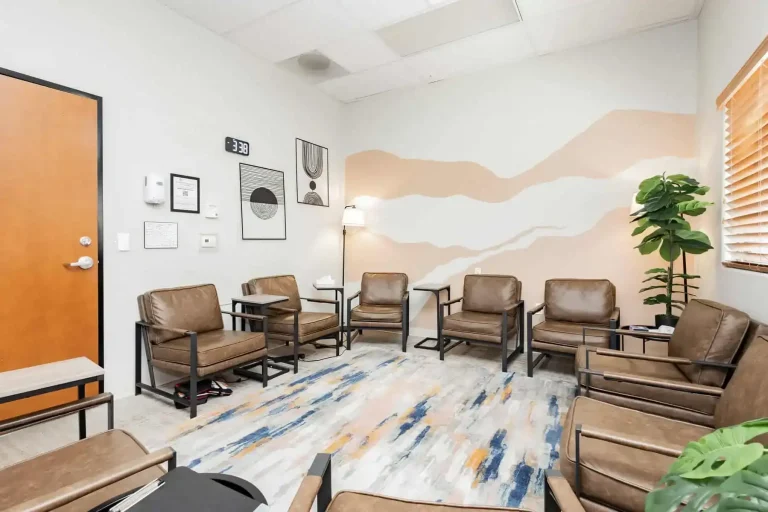
Take a virtual tour of our Montessouri location in Las Vegas, conveniently located near Sahara and Rainbow. This outpatient clinic is designed to provide a supportive and professional environment for individuals participating in our Partial Hospitalization (PHP) and Intensive Outpatient Programs (IOP). Explore our thoughtfully arranged group therapy rooms where connection and healing happen daily, along with private therapy spaces dedicated to individualized care. While clients return home after each session, our facility ensures every moment spent here promotes growth, comfort, and recovery. Begin your journey with a glimpse into the compassionate care that defines Virtue Recovery Center.
Getting Started with PTSD Treatment Services at Virtue Recovery Las Vegas
If you or a loved one is living with PTSD and an addiction, you don’t have to go through this alone. At Virtue Recovery Las Vegas, we understand the complexity of this condition and are here to offer comprehensive PTSD treatment services that will help you build a foundation for lifelong recovery.
Call us today at 866.520.2861 or reach out to our team online to begin your journey to recovery.
Veterans PTSD Treatment
Veterans often face unique and deeply personal challenges when it comes to PTSD. At Virtue Recovery Las Vegas, we honor those who have served by providing specialized treatment for veterans—available through both inpatient and outpatient programs.
PTSD in veterans may come from combat, loss, or trauma experienced during military service. These memories can trigger nightmares, flashbacks, emotional numbness, or feelings of isolation. It’s a heavy weight to carry—but you don’t have to carry it alone.
Our veterans treatment program is built around your experiences. In both inpatient and outpatient settings, we offer therapies such as EMDR and trauma-focused Cognitive Behavioral Therapy (CBT) to help you process and release the pain tied to past events. You’ll also have the chance to join veteran-only group sessions, where you can connect with others who truly understand your journey.
We go beyond talk therapy by integrating holistic treatments that support healing in body and mind. Yoga, meditation, exercise, and nutritional support help you rebuild physical strength while calming anxiety and stress. Family therapy is also available to help you reconnect with loved ones and bring them into your healing process.
Whether you’re in the early stages of seeking help or ready to transition back into daily life, our full spectrum of care is designed to support your unique needs as a veteran.
You’ve already given so much in service. Now it’s time to focus on your well-being—with care and respect that’s personalized just for you.
FAQs About PTSD Treatment
Yes, PTSD symptoms can emerge months or even years after a traumatic experience. Triggers such as life changes, stress, or reminders of the event can cause symptoms to surface later in life.
PTSD is a specific response to trauma, often involving flashbacks, nightmares, and avoidance behaviors. General anxiety is broader and not always linked to a traumatic event.
Not always. While medications can help manage symptoms, many people benefit from therapy alone or in combination with holistic approaches.
Group therapy provides a supportive environment where you can share experiences and learn from others facing similar challenges. It helps reduce feelings of isolation.
Yes, our programs are inclusive and sensitive to the unique challenges faced by LGBTQ+ individuals.
Yes, our dual-diagnosis programs address both PTSD and addiction simultaneously, ensuring no aspect of your recovery is overlooked.
Glossary of Terms for The PTSD Treatment Program
Acute Stress Disorder (ASD)
A short-term condition that occurs after a traumatic event, characterized by symptoms such as anxiety, flashbacks, and difficulty sleeping. ASD can develop into PTSD if symptoms persist for more than a month.
Aftercare
Ongoing support provided after completing an initial treatment program. Aftercare for PTSD might include therapy, support groups, or other resources to maintain long-term recovery and mental health.
Cognitive Behavioral Therapy (CBT)
An evidence-based therapy used to treat PTSD. CBT focuses on identifying and changing negative thought patterns that contribute to trauma-related symptoms.
Cognitive Processing Therapy (CPT)
A type of CBT specifically designed for PTSD. CPT helps individuals process and challenge their thoughts about a traumatic event, reducing the emotional impact over time.
Dual Diagnosis
A treatment approach that addresses both PTSD and co-occurring disorders, such as substance abuse or depression, simultaneously for comprehensive care.
Eye Movement Desensitization and Reprocessing (EMDR)
A psychotherapy technique that helps individuals process traumatic memories by combining exposure therapy with guided eye movements to reduce the emotional distress associated with the memories.
Exposure Therapy
A therapy used to help individuals face and overcome their fears by gradually exposing them to trauma-related thoughts, feelings, or situations in a safe and controlled way.
Flashbacks
Intense, vivid re-experiences of a traumatic event that can feel as though the individual is reliving the moment. Flashbacks are a common symptom of PTSD.
Grounding Techniques
Methods used to help individuals stay present in the moment during episodes of distress or flashbacks. These techniques often involve focusing on the senses, such as sight, sound, or touch.
Holistic Treatment
An approach to PTSD recovery that addresses the whole person—mind, body, and spirit—using therapies such as yoga, mindfulness, and nutrition alongside traditional treatments.
Hyperarousal
A state of increased alertness and sensitivity often experienced by individuals with PTSD. Symptoms include difficulty sleeping, irritability, and being easily startled.
Intrusive Thoughts
Unwanted, distressing memories or images related to a traumatic event. These thoughts are a hallmark symptom of PTSD.
Mindfulness-Based Stress Reduction (MBSR)
A therapeutic approach that combines mindfulness meditation and yoga to help individuals manage stress and PTSD symptoms.
Panic Attacks
Sudden episodes of intense fear or discomfort, often accompanied by physical symptoms such as rapid heartbeat, sweating, or difficulty breathing. Panic attacks can occur in individuals with PTSD.
Post-Traumatic Stress Disorder (PTSD)
A mental health condition triggered by experiencing or witnessing a traumatic event. Symptoms may include flashbacks, nightmares, avoidance behaviors, and heightened anxiety.
Relapse Prevention
Strategies and tools designed to help individuals with PTSD maintain their recovery and avoid returning to harmful behaviors, such as substance use or avoidance patterns.
Somatic Experiencing
A body-focused therapy that helps individuals release trauma stored in their bodies through movement and awareness of physical sensations.
Stigma
Negative stereotypes or misconceptions about PTSD or mental health conditions that can discourage individuals from seeking help. Education and awareness are key to reducing stigma.
Support Group
A group setting where individuals with PTSD can share their experiences and receive support from peers who understand their challenges.
Trauma-Informed Care
An approach to treatment that recognizes the impact of trauma on an individual’s mental and physical health, emphasizing safety, trust, and empowerment in the recovery process.
Trigger
A stimulus, such as a sound, smell, or memory, that causes an individual with PTSD to recall a traumatic event or experience distress.
Veterans PTSD Treatment
Specialized treatment programs designed to address the unique challenges faced by military veterans who have experienced trauma during service.
Withdrawal Symptoms
Physical or emotional symptoms experienced when someone stops using substances that they may have used to cope with PTSD, such as drugs or alcohol. Common symptoms include anxiety, depression, and irritability.
Yoga Therapy
A holistic practice that incorporates breathwork, movement, and meditation to help individuals with PTSD manage stress and build resilience.
Zones of Regulation
A framework used to teach emotional self-regulation, helping individuals identify their current emotional state and implement strategies to manage it effectively.




